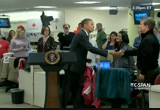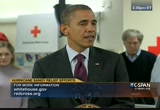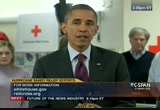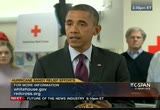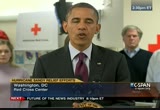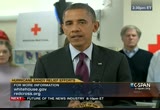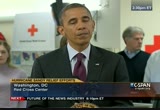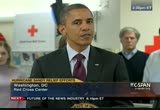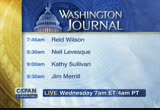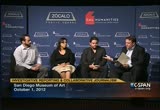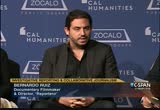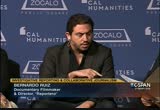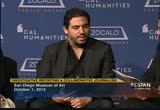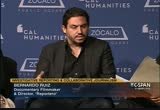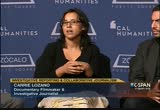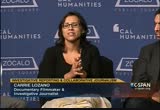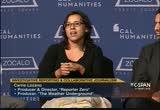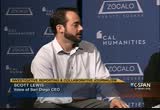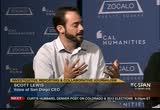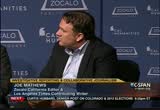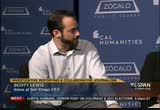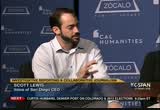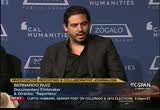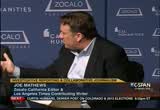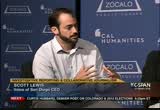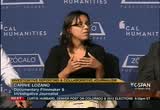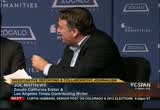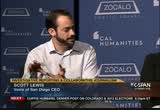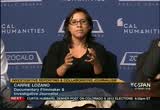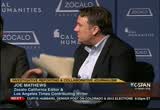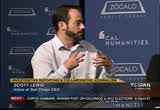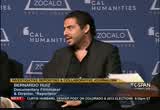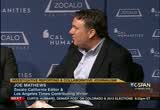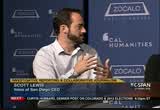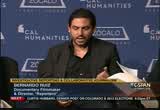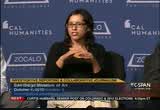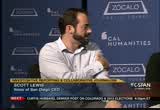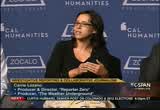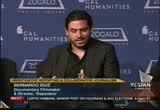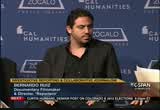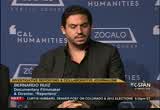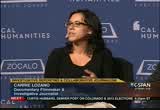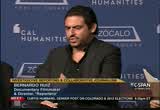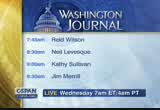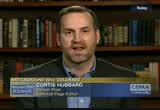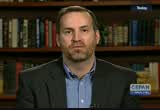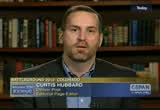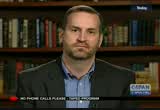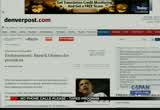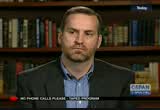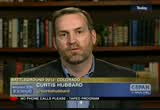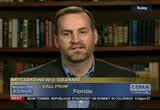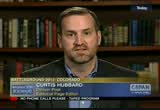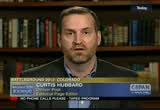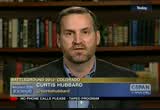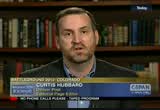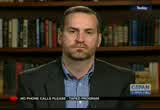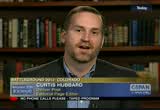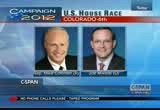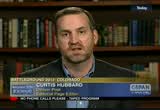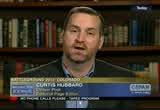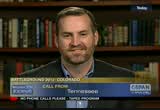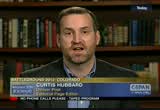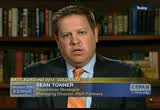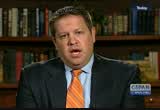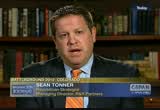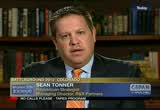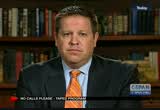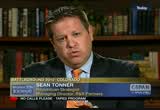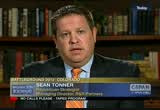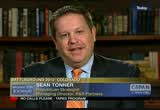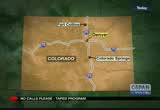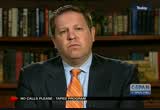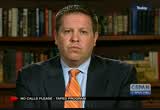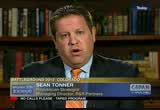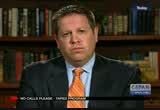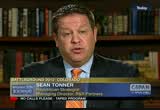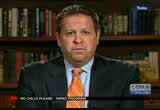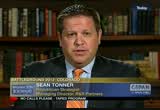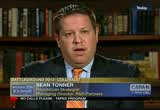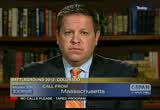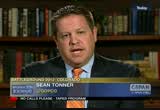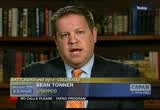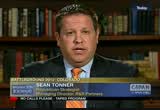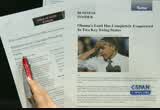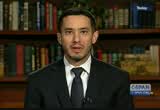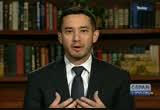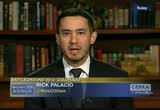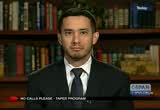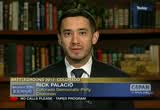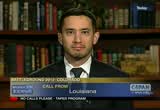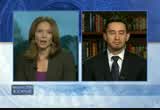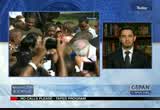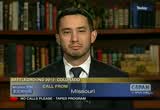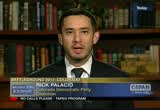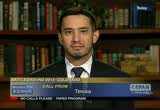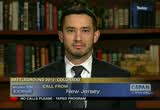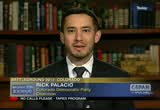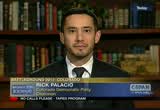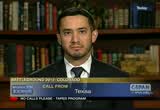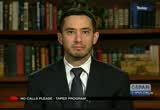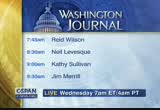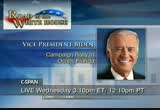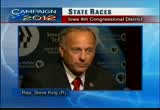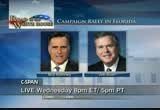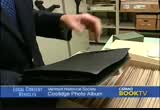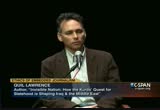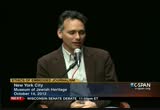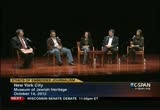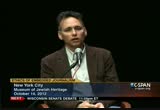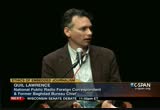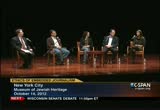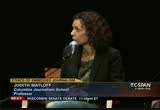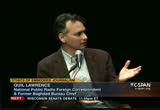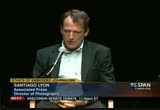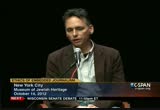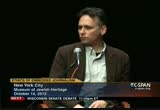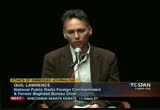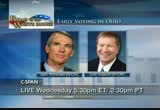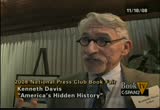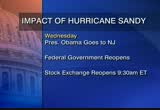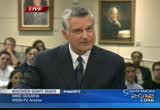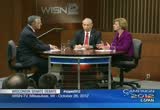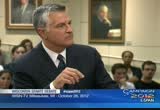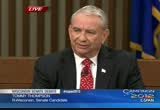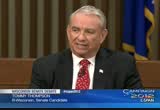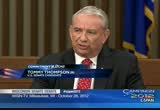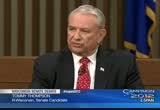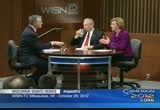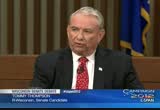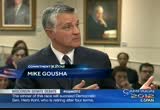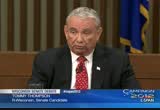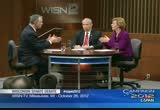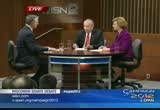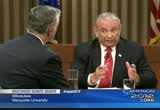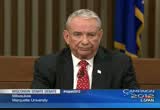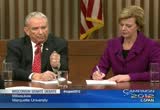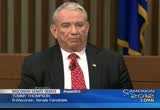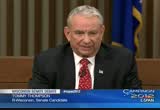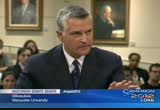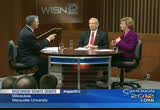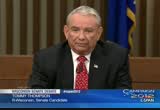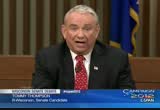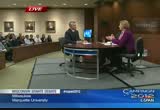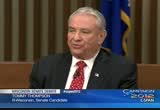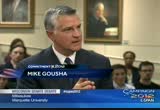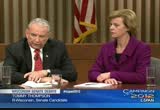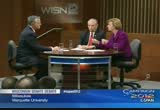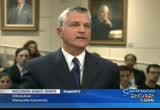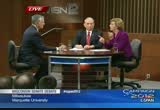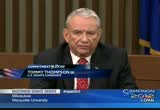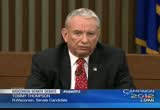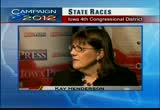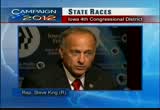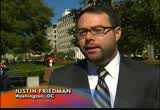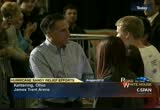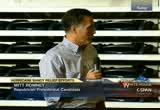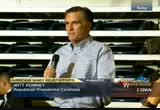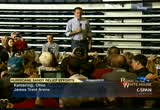tv Capitol Hill Hearings CSPAN October 30, 2012 8:00pm-1:00am EDT
8:00 pm
x coming up tonight, after hurricane sandy caused heavy damage to parts of the east coast, president of odyssey national headquarters of the red cross. -- obama visits the national headquarters of the red cross. then a discussion on the news industry and investigative reporting. that is followed by a look at colorado as a swing state in between fatah elections. >> president obama visited the red cross national headquarters in washington d.c. today. he spoke about recovery efforts after hurricane sandy caused widespread damage across the
8:01 pm
east coast. he was in new jersey on wednesday. this is 10 minutes. >> first of all, i want to thank gail and charlie that are on the scene doing work every time we have a disaster here in the united states of america, but obviously the red cross is doing outstanding work internationally. we want to thank them for their outstanding work. a few things i want to emphasize to the public at the top, this storm is not yet over. we have gotten briefings from the national hurricane center. it is still moving north. there are still communities that could be affected. i want to emphasize there are still risks of flooding, downed winds. very important for the public to continue to monitor the situation in your local community. listen to your state and local officials, follow instructions. the more you follow the instructions, the more they can deal with situation.
8:02 pm
next obviously i want to talk about the extraordinary hardship seen over the past 48 hours. our thoughts and prayers go out to all the families to of lost loved ones. unfortunately there have been fatalities as a consequence of hurricane sandy, and it's not clear that we have counted up all the fatalities at this point. obviously this is something that is heartbreaking for the entire nation, and we certainly feel profoundly for the families who have been uprooted and will be going through some very tough times over the next several days, perhaps weeks and months. the most important message i have for them is that america is waiting. -- with you.
8:03 pm
we are standing behind you, and we will do everything we can to help you get back on your feet. earlier today i had a conversation with the governors, and many of the mayors in the affected areas, including governor christie, cuomo, and bloomberg. want to praise them for the extraordinary work they have done. sadly we are getting more experience with these big- impact storms along the east coast, in the preparation shows. for it not for the outstanding work of day in their teens, we could have seen more deaths and property damage. they have done extraordinary work, working around the clock. coordination between state and local governments has been outstanding. obviously we are now moving into the recovery phase and a
8:04 pm
lot of the most severely- affected areas. new jersey, new york have been pounded by this storm. connecticut has taken a big hit. because of some of the work done ahead of time, we have been able to get over 1000 officials in place. we have been able to get supplies, food, medicine, water and emergency generators to ensure hospitals and law enforcement offices are able to stay up and running as their of their responding. we will continue to push as hard as we can to make sure power is up throughout the region, and obviously this is mostly a local responsibility, and the private utilities are going to have to lean forward, but we're doing everything we can to provide additional resources so that we can expedite getting power up and running in many of the
8:05 pm
communities. there are places around newark, new jersey, where you have 80 percent of the people without power. my instruction has been do not figure out why we cannot do something. i want to figure out how we do something. i want you to cut through red tape, bureaucracy. there is no excuse for inaction at this point. i want every agency to lean forward and make sure we are getting the resources where they are needed as quickly as possible. so i want to repeat, my message to the federal government, no bureaucracy, no red tape. dear resources where they are needed as fast as possible, as hard as possible, and for the duration, because the recovery process obviously in a place like new jersey will take a significant amount of time. the recovery process in lower
8:06 pm
manhattan will take a lot of time. part of what we're trying to do here is also see where are the resources that can be brought to bear that traditionally are not used in these kinds of disaster situations. for example, there may be military assets that help us move equipment to make sure the flooding and pumping out the water in new york city can move more quickly. there may be resources to bear to help. private utilities get their equipment and personnel in place so we can get power up and running as soon as possible. so my message to the governors and mayors and through them to the communities that have been hit so hard is that we are going to do everything we can to get resources to you and make sure any unmet need is identified.
8:07 pm
we are responding to it as quickly as possible. i told the mayors and governors if they're getting no for an answer somewhere in the federal government, they can call me personally at the white house. obviously the state and local federal response is important, but what we do as a community, what we do as neighbors and fellow citizens is equally important. a couple of things i want the public to know they can do. first of all, because our local law enforcement, first responders, to the extent everyone can be out there looking out for neighbors, especially older folks that is really important. if you have a neighbor nearby you are not sure how they are handling power outage, flooding, et cetera, go over and visit them. knock on the door and make sure they are ok. people who have not been
8:08 pm
affected around the country, now is the time to show generosity that makes america the greatest nation on earth. a good place to express that is by donating to the red cross. you think go on to their web site. they are in close contact with federal, state, and local officials. it will make sure we get the resources to those families as quickly as possible. i want to thank everyone here do is raise a great job when it comes to disaster response. the final message i say is during the darkness of the storm i think we also saw what is brightest in america. i think all of us were obviously shocked by the force mother nature.
8:09 pm
at the same time, we have seen nurses at nyu hospital carrying fragile newborns to safety. we've seen incredibly brave firefighters in queens waist- deep in water bottling infernos and rescuing people in boats. one of my favorite stories is down in north carolina, the coast guard going out to save a sinking ship. they sent a rescue swimmer out. the rescue swimmer said i am dan and i understand you need a ride. that kind of resilience and strength and looking out for one another, that is why we always bounced back from these kinds of disasters. this is a tough time for a lot of people, millions of folks all across the eastern seaboard, but america is tough, and we are tougher because we pull together and leave nobody
8:10 pm
behind. we make sure that we respond as a nation and remind ourselves that whenever an american is indeed, all of us stand together to make sure we're providing the help necessary. i just want to thank the incredible response we a party scene, but i want to remind -- we have a;rlready seen, but i want to remind people this will take some time. it is not going to be easy for a lot of the communities to recover swiftly. it will be important that we sustain the spirit of resilience, that we continue to be good neighbors for the duration until everyone is back on their feet. thank you very much, everybody. thank you, red cross. [applause] [captioning performed by national captioning institute] [captions copyright national cable satellite corp. 2012]
8:11 pm
>> the house held a pro forma session today -- they had a moment of silence for the victims of hurricane sandy. >> the chair would ask all present to rise and observe a moment of silence and the memories of those who have perished in hurricane sandy and to remember those as well to continue to suffer. -- as well who continue to suffer. >> up next, a discussion on the future of the news industry and investigative reporting. then a look at colorado as a swing state in the 2012 elections. later, journalists and reporters talk about working in conflict areas.
8:12 pm
>> tomorrow morning's "washington journal," reid wilson talks about the october surprise and why he thinks it has an exaggerated history. then a look at the battleground state of new hampshire. a guest on the state's political history and the ongoing congressional and governor races there. after that, democrat kathy sullivan and republican jim merrill the script -- talk about new hampshire for president obama and mitt romney. the state has four electoral votes and went for president obama in 2008. late wednesday at 7:00 a.m. eastern on c-span. >> i like watching the gavel to gavel coverage. it is the only place you get the real deal. i enjoy newsmakers. the books programs. i like that the commentary is only intended to let you know
8:13 pm
what is going on. there is not too much analysis. there is certainly not opinion. i appreciate how i can see through and understand the programming itself. i can get my analysis elsewhere. if you want to see how you governor works directly, c-span is just about the only place to go. >> justin friedman watches c- span on a comcast. san -- created by cable companies in 1979, brought to you as a public service by your television provider. >> a discussion on the current state and future of the news industry, focusing on investigative reporting and journalism practices. this event, hosted by zocalo public square, is an hour and 15 minutes. [applause] thank you all very much for being here tonight. thanks to cal humanities for
8:14 pm
making this possible. the topic is inspired by the jefferson quote about the price of freedom and liberty. jefferson also said, reportedly said, but " given the choice between government and newspapers, without one or the other, he would have preferred to do with that newspapers and government. then he got elected and began to claim he was misquoted. from that, zocalo said big questions may lot of different perspectives. we have re-different people here -- three people here from different parts of the country, different backgrounds. they're all journalists. they are all people who have looked at a wide variety of
8:15 pm
topics in their work, and have among the topics they have looked at, are the media itself and specifically questions about how we keep a check on power, keep a check on government. you will hear from all three of them. i will introduce each of them as i ask the questions. immediately to my right is bernardo ruiz. his most recent film "reportero," is an incredible fun if you have not seen it -- -- film if you have not seen it, it follows a reporter at an embattled mexican news weekly reporting on an opening -- organized crime, and corrupt officials. the film was completed and toward mexico and the human rights watch film festival and l.a. john fastenal, january 7, 2013 on the -- january 7, 2013
8:16 pm
on pbs. it is also -- he also produced two documentary's examining the drug crisis and is a previous director of the american experience roberto clemente, winner of an award for outstanding television documentary. he has done a number of other things. the question is -- what does digital mean at this time of transition, how we get information by newspapers, the changes in reporting. what does it mean? what should it mean in this context? what does it mean particularly for the kinds of reporters that you have most recently made this film about who are covering very difficult stories where there is real risk involved? >> from my perspective, as a documentary filmmaker, i do not
8:17 pm
know i would consider myself a journalists in the traditional sense. i think i have a slightly different set of challenges. a traditional journalist has to be factually accurate -- like that, but that is a point of departure to make something larger. i do not always get there. for me, and vigilanceis a bad debt. i made "reportero" about the staff and reporters there public, the co-director of the paper, and i wanted to make the film because so much of the u.s. cable coverage that i was seeing about the drug war, especially in this part of the country, to me seemed woefully
8:18 pm
decontextualized. it felt like rubbernecking body count journalism. x number of people were shot on the state. this person was be headed there, but no context. no background, no history, the deepening of the story. i'm by no means a expert on mexico's drug war, but i did have a very strong interest in this region and in. i began researching as early as -- in itjuana. i began researching in 2007 while looking for another story. unlike other journalists, who do not have the amount of time that you often need to tell the stories, when i was in production i had a little over two years to spend with the story. that is enough time to deepen your sense of a place, an institution, to gain trust and to hopefully have a deeper
8:19 pm
narrative. whether or not i succeeded at -- or failed is up to the audience and the people who push back on my perspective, but for me the ability to spend time with an issue, too deep and your understanding of that issue, provide the debt to audiences, that is key to take apart that issue of the audience -- of vigilance. >> to different pressures that are in no way similar, but speak to how hard is to be a professional reporter, a documentary filmmaker in these times. in your film you talk about a couple of different stories, a columnist, a court reporter, the founder, living on this side of
8:20 pm
the border to avoid danger. in a time when it is so hard to make a living doing this anywhere, are we asking too much of professional journalists, do you think? >> that is a great question. i think the newspaper reporters that profiled in a "reportero" -- the lead reporter, they had very serious threats that force them to send his family away for a while. they would say, we are just regional reporters, doing our peace, cover and organized crime as we see it played out in this region. what u.s. reporters doing? i was speaking to a person who basically started one of latin america's first online news outlets, a fabulous online news outlet. he was saying is almost as if
8:21 pm
david copperfield were at the border when these suv is packed with methamphetamines and other drugs and narcotics were funneled into the united states, as if they magically vanish when they hit the united states. who is doing reporting on the criminal distribution networks in united states, atlanta, dallas, los angeles -- who is doing that reporting here? so much attention is focused on what is happening in mexico, we are lamenting the strengths or weaknesses of reporting in mexico. the mexican reporters, especially the regional ones, were hardest hit. it is the once in these regional outlets like tijuana. they want to know who was telling the other side of the story and who is doing the money reporting, all these narco dollars. who is doing the story about money laundering? i do not know if i answered your
8:22 pm
question, but that is certainly a kind of push back there. who is telling the good story and -- big story and the small story? >> let me bring in carrie lozano to the conversation. she is a documentary filmmaker and journalist who has done a lot of work. her from "underground" appeared at sundance. also, she is an emerging expert on the question of collaborative reporting, journalists, between news organizations, citizens, she works in the investigative reporting for uc berkley and has co-founded the
8:23 pm
collaboration central. very basic question -- who is doing this kind of reporting? you could say this about anything. do existing american media have the resources, individual television stations, to do investigative reporting on the toughest stories? >> if my boss -- my boss, for any of you who have seen "insider, " he is the insider, al pacino. he says investigative reporting is not non-profit, it is anti- profit. he is right. nobody ever had the resources to spend two years on a story. nobody knows this, but "been york times" did not even have an investigative -- "the new york times" did not even have an investigative unit into a cup -- the 1990's. even then it was just a couple
8:24 pm
of people. i do not want to say that nothing has been done, because scott can tell this -- at the local level. the local watchdog is hurting around the country, but at the national level i do not know that a so much the case that we are not able to be vigilant anymore. i think vigilance is taking a different form. it is taking the form of more collaborative efforts, where people are working together to produce really in-depth stories that are hard hitting and take that watchdog role. it is happening in other medium s. a lot of documentary filmmaking is becoming investigative and there's more support and acknowledgment for that. if you look at the numbers over time, more newspapers do not exist, a lot of reporters have lost their jobs, that is true, you cannot deny it, but i went
8:25 pm
to the investigative reporting conference this year and there were 1500 people there, one of the largest turnouts ever. people are still doing work, doing it in different ways. the money is always hard to come by. it may be harder, but we also have wider means of distribution. it is hard to say -- there is no clear cost-benefit analysis of was a better then than now. i am not 100% convinced. i think it is different now. >> i worked in three newsrooms "the street journal," "and the los angeles times." i worked with many brilliant people, but plan well with others was not a strength of the people i worked with across any of those. it very difficult folks. they had a hard time collaborating and getting along with the person sitting next to them in the news room. my old boss from "the los angeles times," he called the
8:26 pm
collaborative effort a pain in the a. tell me what one of these things looks like. explain what happens -- how do they get along? do they get along? >> for those of you who have not worked in a newsroom before, journalists and organizations are incredibly competitive. even today, in your contract, your citing confidentiality agreements. you will not talk about your story. a story -- i do not know if it has been true -- they used to assign reporters the same story to two reporters to see who does the better job. there is a huge cultural issue here. what is happening because of diminished resources is news organizations are starting to say, i cannot do that kind of work on my own. i will start to work with other technically competing news organizations. i have been involved mostly in
8:27 pm
large-scale collaborations' that involve pbs frontline, propublica, we are doing something with univision and the center for investigative reporting. it may seem like a no-brainer -- a kind of is, and especially today, but culturally is against the norm. we received it uc-berkeley a grant a couple of years ago from the knight foundation -- they asked us to do a how-to model for collaborative reporting trade we quickly realized that before we can teach people to do this, we need to change their mind. we need to change the culture in some way or start to talk about the culture. do they always play well with others? not always. the thing i say every conferences i think that in the news industry we need to be -- put a lot more effort into teaching and team work in a way
8:28 pm
other businesses do and teaching leadership. it is good leadership and teamwork skills, the acknowledgment of that -- reporters can do a job they feel good about. >> there is not enough money. everybody -- the audience is too fractured? >> it is both. for frontline, the executive producers there felt they do not have investigative reporters on staff, they cannot afford it. they want to have the most cutting edge investigative stories on the air. the way they do that is to work with other organizations who are doing investigative work. they are not broadcast organizations necessarily. it is about the money and it is also about the fractured audience. one thing that we realized when we worked on a series with propublica, front line, and npr -- when you have a and your store with 25 million listeners more people watch the broadcast. it is finding different
8:29 pm
audiences. >> thank you very much. let's bring in scott lewis, ceo of the "voice of san diego." he manages the internal operations for the organization. he has traded partnerships and projects. he is a regular on tv and radio , host of "san diego fact jack" here -- "san diego fact check" here, has a weekly radio show, etcetera. your serial collaborator. your staff has 10 people. void can you fill with partnerships and you are young, hungry, a talented staff? >> i would like to map what we
8:30 pm
are not doing. areas of geography, institutions that are not being covered and why. holding a mirror up to somebody -- just by showing people that you are watching, there is a positive effect. our goal is to cover things as best we can. that means we cannot repeat or be redundant to anybody else's work. jeff jarvis says ". >> what you do best, and you link to the rest." we find stories we can really be the best that and frame and explained. and then let other people do what they do best. and accentuate that and try to help that. when we look at partnerships, we look at -- we look at a world where the producers of content, the drivers of explanation and
8:31 pm
storytelling, do not have to be tied to the means of distribution, a broadcaster re printing press or whatever. the idea that you can have the means of production and distribution in the thing that comes up with the storytelling is i think an old one based on the newspaper having a printing press in its building. we have decided we can be the agency that supports public radio, commercial radio, magazines, tv, and we can all work together to get the best stories possible. we are switching also to not necessarily covering beats but covering narrative's. rather than just putting one person on education to try to double that entire fire house that comes at him, -- fire hose that comes at them, they can add narratives and subtract them,
8:32 pm
make sure people are involved. if they are not enrolled in those neighbor -- narratives, something will play out without their impact. >> a follow-up question -- i am not thinking of any city in particular here. with that kind of operation, let's say you have that operation in a city where the daily newspaper in town started to do some very strange things. i imagine that. it was owned by somebody who was very openly talking they were going to support particular causes, particular developments, particular parties. i imagine something like that could happen. does that add to the obligation of citizens, people like you, to do more to fill that void? or can you still -- fill the void -- is that city just out of luck? >> first of all, it is a
8:33 pm
remarkable symbol of what is happening to journalism. locally, the owners of the "union tribune" just purchased the "north county times" -- the assets are collapsing in value. they bought it for $12 million, sold his house for $18 million. putting aside that, these properties can be acquired and done with resume. this is not an expensive problem defects. i think that is an important thing to remember. i have a budget of law at -- a little more than $1 million, which is a lot three-person like me. a cultural institution for an impact with the entire city -- that is not a -- not that much. museums are run on a higher budget. university colleges, professors in universities are on a bigger
8:34 pm
budget. the point is that if we want to solve this and realize we want to have more coverage, there are ways to do that. we have setup a society that knows how to find institutions with that kind of impact. the "texas tribune," we inspired them -- now they inspire us with their ideas and structure. >> they are treated from people from a "texas monthly magazine" wanted to focus on local politics? >> we were featured on the front page of the "new york times" after investigations we did. they told us, what can we do here? they decided they wanted to do an entity in austen that covers politics relevant to the entire state. now they're running on a $5 million budget. we are all talking at that. that is a lot of money for the -- not a lot of money for the type of impact that institution
8:35 pm
can have. with the vance, corporate and member sponsors, you can do some impressive things. we are trying to look at this is a problem to solve. do not cover anything unless you can do better than anybody else or nobody is doing it. makes sense of what people say, a fact check it, but find out what they do not want to say as well. applying those types of metrics to the stories and narratives you will cover can make it so that you are leveraging a small amount of resources a lot better than perhaps the old model. >> for the whole panel -- you mentioned, bernardo, a story here, a big story here. what are we missing when we do the things we can with the resources we can -- what are the holes opening up where we are not being vigilant? >> it is geographic and
8:36 pm
qualitative. there are areas or not covering, institutions. people appreciate investigative journalism when it has its impact, but when it is not around to do not know what you are missing, unnecessarily. we do not know what we do not know. i think that is an important problem. >> we look for stories where really -- they're literally is not work being done. one of the big stories last year was about an investigation in america. you may hear about a murder investigation in a nearby city and it might seem flawed, but that is the end of it. this came from a long trail of reporting done by many different people. we started to just get a sense that -- we did not have a sense of what the country looked like. we started to learn there were no rules for what it meant to be a corner -- you did not have to
8:37 pm
be a doctor or trained in some cities. there is an anecdote that somebody was also the janitor as well as the corner. we are looking for tips where there is a story in front of you, the local murder investigation, but what is behind that? that is what we are always doing, trying to look at an issue that may be all around us but nobody has found a really particular angle. we are lucky because we have the capacity to do national stories and try to get different organizations involved to look at something on a national scale. >> bringing back to that -- as a documentary filmmaker, i manage a small company, we are four people -- when you commit to a story, you had better know that you are going to do a good job. once you go down that rabbit hole, you are talking about a couple of years. for me, the criteria is, take a
8:38 pm
narrative out there that is well known and find a back story. i think about the story -- >> the general -- legendary columnist. >> exactly, who when kennedy was being buried was looking for an angle on how to tell the story and ended up doing a beautiful piece, interviewing the grave digger. telling the story of kennedy's @ through the point of view of this grave digger. how do you talk about the drug war and u.s. links to the drug war, this thing that is so impossible -- you have to root it in a specific story and find some kind of back door, some kind of different way to do it. for me that is always an important piece of the puzzle. >> to look at another aspect of this -- a lot of cities -- citizens are doing journalistic things with their cameras all over the world.
8:39 pm
i found myself thinking as i was watching about everyone, folks in syria and homs, they show what they could, to folks here in oakland with camera phones trying to show police misbehaving. somebody, the act of journalism, how to protect people, whether they are citizens or professionals -- what you think? we do not have a conversation about that. should there be an international standard of journalistic rights, if you are committing journalism you should be protected? how you protect those folks? >> good luck implementing that law. is a great question. something journalists and tijuana struggle with all the
8:40 pm
time with the rise of social media and websites a lot of you have heard about -- including one which started out as a compendium of information about basically narco turf wars, shootings in the streets, the headings. it started off as a visual wallpaper and has since become interesting, more sophisticated, and is beginning to write articles and put -- and the editor is anonymous, but they are beginning to publish pieces. this thing that was touted early on as being a kind of innovative or new information delivery system is now turning into a more traditional journalistic entity. the journalist would say, that is great that the information is there, and the kind of iphone video or man on the street, so called man on the street video of any event can be uploaded quickly, but who is providing
8:41 pm
context and analysis? not that we always need to rely on experts, but if you are writing for a weekly, that really gives you a totally different approach. you can provide context, provide perspective, in a way that you do not necessarily get from that immediate delivery of information, of data. >> in collaborative work, to what extent are using stuff that comes in from citizens? to what extent are you putting data and other things out that citizens can send -- can then put the pieces together? how much of that do you do? what is its value? what does not work about 8? >> we do not have a magic formula, we do not have the type of investment you can make controls the other people do. it is important to remember that journalists always put out a story knowing that the response is more valuable than the story they put out.
8:42 pm
to see what the truth is. we are just entering a very exciting phase. with this disruption, there has been a lot of different efforts to change the role of journalism -- not just to classify the job, but also to organize information better. one of the roles journalists never picked up the way they should have and we are trying to explore more is their educational role. you can do investigative journalism, but the idea that people understand everything journalists talk about or read about in their story these days is really something we need to examine. they are not following the story is very well. it is not their fault. stories are not being told fully. they are not being brought to speed. the number of people who know how school board elections work or how different aspect of our community actually function before they can even get enrolled in a story about how they are developing is something
8:43 pm
journalists need to take stock in and step back from. this formula is being applied to digest, stuffr's like that, that help people. >> the citizen question -- >> we are not an outlet. we are a program at the university of california, a graduate program that does reporting, but we are working with different organizations. we do not really have an initiative, per said, but there are organizations that are doing incredible work with citizens. "the guardian" in the u.k. is the best example of a large organization that works with citizens on a huge scale. one of the things they did in the last couple years was pulled from public records about the way their politicians are spending money. millions of documents. they created a form and citizens volunteered to go through those
8:44 pm
millions of documents and competed. it was amazingly successful. i do not know how many thousands of people participated, but it was a lot. "the guardian" is very innovative. american journalists are trying to find ways to do this -- to engage citizens. we do not get a lot of cold calls or tips, but we never ignore. i do not know if there are journalists out there -- we never ignore a tip. i do not care how crazy it seems, how far-fetched -- we always follow up. you'll be surprised at how many amazing stories we get out of those tapes. -- tips. on that way, we deal with people in serious ways. when we do large-scale investigations, one of the things we try to do is make information available for other reporters. we treated maps that showed in each county or state level, it
8:45 pm
is different at the county level, how investigations work, what journalists need to report. trying to share as much information as we can so that other reporters can take what we have done and carry it forward. >> talking about educational -- i could not help but think of the internal revenue service when he started talking about education. you are collaborating with nonprofits. bernardo ruiz productions -- >> not a non-profit, but primarily public funders, foundations. >> saw your non-profit -- so you are non-profit, you have money from foundations, they have agendas. the second problem, the irs seems to not buy in many cases,
8:46 pm
they do not buy the notion that non-profit journalistic enterprises are educational things. how do you wrestle with both of those? >> there is a discomfort with the idea that newspapers are not going to be ok. the idea that it needs to be a public service type entity that take that role is still something they are getting accustomed to. there is movement in a positive -- >> these are old irs agents that are holding back? >> i do not know. the point being, what i'm trying to address is that there is a role, there is a gap between when you leave school, even college, and civic engagement, being able to run for office. what that knowledge -- how you learn all the things about how your community works? there is a gap, and we have no
8:47 pm
organized system for how to get you to that point other than for you to individually look at your students' school or a stop sign not in place, then you start getting engaged. that is why i think our type of organization can increase that educational role and do more of what we are doing at the investigative and vigilance. >> have you had a hard time? >> we were one of the first. maybe they started to dial back the more controversial organizations. it has done quite well. we never had trouble. it is important to note that the members who watched support it. it is not a question when they make that decision -- people are wondering when people support journalism, these newspapers fall apart and people say people are not willing to pay for journalism.
8:48 pm
>> they never ask, please, help us? >> it just stopped. it just stood there like a depressing time capsule for months -- it drove me nuts. these entities are falling apart without ever wondering what their community would support. frankly, a nonprofit is a much better situation to make that plea to the community because a for-profit is set up for shareholder values where receiving money as gifts is awkward. we see it in different newsrooms around the country. >> you are more sympathetic? >> i am saying the mission-based organization is a more sympathetic organization to support. >> when you reported on some of these that are foundation- funded, had he seen examples of the founder trying to meddle?
8:49 pm
>> yes, but it is a meddling in a particular way. very few foundations exist solely to support journalism -- there are a few, but there are not many. there are thousands of foundations with in this country, and they have very specific desires and goals and impacts in mind. it might be to better their community, to better the arts. a host of things. when i say nettling, it is that sometimes they will give a news organization money with a very specific scope in mind. i am making this up to be fair, but maybe they want you to just cover education. that could be great, but maybe what you really need to cover something else in that community, but suddenly you have a check in front of you and you feel compelled to cover education. that is the type of thing we are seeing here and there, but that overall is kind of concern.
8:50 pm
i think it could be that foundations could be educated about journalism. i went to a big foundation conference and realize they do not necessarily understand the east coast of journalism. that goes against the east coast of journalism -- ethos of journalism to tell them what they should cover. i think it had a conversation, but it will take time and effort. >> for money to make films? how tough it out there? is there money for vigilance? >> on the documentary side, it is most of the time, as documentarians, we are what would be considered enterprise journalism. we subsidize our development and by the time we have something to show or the sense of a pitts we are going to foundations. typically we are going to places where we think these projects would be well received. i am also sometimes commissioned
8:51 pm
by entities. i am working on an education serious, and that as a commission from the corporation for public broadcasting. the mandate is very clear. i have been very lucky in that the foundations that have supported my work -- in "reportero" we had quite a bit of support in the ford foundation. there was no editorial meddling and no restrictions on we should and should not be talking about. >> another aspect -- the standing army of journalists has declined and been given their honorable or not so honorable discharges. particularly in the last decade. they have gone to all kinds of institutions -- i keep finding old colleagues are people i knew who argue in journalism from in a different kind of place. they will tell me that, at least. government is one -- you started
8:52 pm
in government. you were the inspector general of health and human services. the legislative leadership in california hired a bunch of journalists out of the press corps to put them in office -- they figure out stories that have not gotten a lot of attention. there are reporters working in l.a. county for the board of supervisors -- they have journalistic blogs or even internally. does that have value? can the government be doing this? can you be doing journalism from government? >> no. i do not think you can be doing government from in -- journalism from in government. the inspector general is supposed to be a -- apolitical, and that was not totally the
8:53 pm
case, to be totally frank. i do not know what it is like now, but when i worked there during the clinton administration it was absolutely not apolitical. people make decisions about what it will find, what you will do. i was told that during the bush administration the oig would write reports. that are be completely redlined and turned into a one page memo if it did not fall on certain lines. so i do not think that as possible. >> let me disagree a little bit. maybe not vigilance, but with resources in our world, all these complaints about not covering the good news, different types of news that come from different types of entities can be reapportioned to other needs. the mayor's office, they had at 1.3 of some of the best former writers in town, former journalists.
8:54 pm
they could have produced a voice of the mayor's office that was interesting to read, that i would have read. that -- is that government propaganda? of course it is. but on the other hand, n look, nfl.com is doing. they ron collins and analysis, interesting conflict-type stories -- run columns and interesting conflict-type stories. resources are going direct. in a world of dwindling resources, those resources are used for vigilance and to make sense of what they are saying. put it into context and find out things they do not want to say, but perhaps we can drop the complaint that we are not covering good news and that and cover their own good news. >> that is a good point. -- let them cover their own good news. >> that is a good point. >> what about the ngo? human-rights what has won a
8:55 pm
journalistic awards for its work -- human rights watch has won a journalistic awards for its works. in the los angeles area, the best investigative reporter now does investigative reporting paid for by the service employees international union local. what about that sort of thing? taken with a grain of salt, is that part of the answer? >> in a world where anyone can buy a newspaper for $12 million, we are close to everyone being pretty open -- newspapers are trying to do -- if a non-governmental organization produces a product that is transparent about things like that -- people can put it together and do in narrative you
8:56 pm
can understand. >> what do you think? >> i was just going to say, as long as these projects are explicit about where support is coming from, are up front about it, at least you are giving a fighting chance. interestingly, a lot of commercial organizations are not explicit or honest about where their support is coming from. in some ways, we're holding the ngo's and nonprofits to a higher degree of scrutiny. >> you get credibility based on the the algorithm you are using to find your information, how transparent you are. it used to be that a young person like jason blair could work for the "new york times" and would have credibility. i think we're changing to a world where an organization has to be open and show how it goes
8:57 pm
about its business, what its plan is, what it is trying to do, and let the reader -- >> what about the academy? what about universities as a home for this? full disclosure -- one of zocalo's most important partners is arizona state university. you work in the academy, doing investigative journalism. is that a national -- home, with academic freedom, or does that have drawbacks and problems that are not immediately apparent? >> i am sure it does. i think it depends on the institution. there is the idea out in the journalism world that we can all become like teaching hospitals. universities can become teaching schools for journalism and put real information out into the world. i think it depends each year for us. some years we have an amazing group of students who are very engaged. as with anything, you might get a year with that is not the case.
8:58 pm
there are ups and downs, but there are more pros than cons , at least for us. being at a academic institution has a commanding -- tremendous benefits -- insurance, the university pays the rent. there are many benefits, but it is definitely a different way of working and involves a lot of time and mentor ship beyond actual reporting and a different type of fund raising, too. >> have either of you collaborated with universities in any of your work? >> i have not had success with it yet. that does not mean we could not figure it out. >> there is a project reworked on -- one of our bigger investigations was done with claremont-mckenna about food stamp distribution in san diego county compared to other counties in california.
8:59 pm
they helped us with the data for that. there are ways with specific projects. >> i hear more about that, and i partnered with zo -- a partner of zocalo, the lane center of stanford, has a spatial history lab. that has allowed journalists to do more with data, deeper data mining. the journalist is almost the translator of what comes out of the data. is that sort of the great potential in that? they have computers and -- >> a partnership always works best when both partners realize they cannot do something. when the journalist realizes they have a problem they can solve if only they had a camera or data or geography, then they can do anything. but it is very important that both partners realize they cannot do what the other partner can not.
9:00 pm
>> if journalists have always been conveeners, they find people, translate experts -- do we get, the army puts the work through the boot camp. you get to the point you have to train experts and people on how to do journalism? that is the next thing -- the journalists, it will be like early vietnam, folks come in to train the citizen >> an exciting and a front will be a version where the prosecutors become journalists, and military experts become
9:01 pm
journalists. the idea that journalism school just produces journalism, there is probably a role for storytelling as a profession. i am really decided -- excited to see some become experts and polling and finance writing and stuff like that. i am excited to see that at the local level, and if we could ever afford some real accountants to investigate facebook and stuff like that, we would know how to write. that would be an expensive purchase. >> i am not worried about good storytellers. i think that is a really exciting idea. one of the things that allows me to sleep at night is when you spend a lifetime working on being a storyteller, i may not be an expert but i am smart enough to know when i do not know something and talk to someone in that particular field. something like planet money is a great example.
9:02 pm
it is an hour of reading radio about hard economic concepts and they do precisely what you have been talking about where you take something incredibly complex and you boil it down in a way that makes sense. it is all told through the power of narrative. i am feel like i am not an expert and will fully on agitated about vast pieces of american life. as a storyteller, i understand i need to go here and put those pieces together. >> i wanted to follow up on something you referenced, the notion of the journalism school, teaching. you are seeing more journalism schools asking, a bunch of foundations getting together recently who wrote a letter that you are not supposed to use in newspaper leads, slamming journalism countries -for not
9:03 pm
using that model. what are journalism schools producing? part of me wonders, is part of what is going on we are trying to keep labor costs low -- those are people who do not need to pay, but they are paying you for the privilege of doing the work. >> this is completely my opinion. i think the world is changing so much faster than academia is accustomed to. journalism, even just a few years ago, we would not be having this conversation. we will be having the death of the newspaper conversation. we had that for five or six years. i feel like things change so quickly. the technology has changed things so rapidly that i think
9:04 pm
macadamia has a hard time keeping up and knowing what to tell young journalists to do. i am reading a slew of our lists saying, i want specialist's again. that is partly what is happening. the world is moving at such a rapid pace. >> we have a switch that with such a robust media industry for so long, the goal of academia as it applies to media was to protect quality and talk about best practices. whither the death of the media industry, and it is the death, the role has to switch to innovation to figuring out how to protect those values and other things we care about. that itself has to have some element of innovation and creativity. it cannot just be about best practices, these great stories we wrote, that sort of thing.
9:05 pm
>> if you want to become a documentary filmmaker, where do you learn how to do that? where do you go train? do you pick up your camera? what advice do you give to someone who says i want to be like bernardo ruiz. >> the scared straight documentary, the ex-con goes to talk to a kid. i sometimes feel like i go to documentary lectures and give that laxer. -- lecture. i go to a new program, a social documentary program, a two- year program in new york. there are two routes. one i took like running away to join a circus. a minor league ball player. you train with people who are really good at what they do.
9:06 pm
>> to train you? >> i was lucky enough to work for a couple great filmmakers. i work for orlando bagwell for a fort -- for a few years. a pbs series. he had come out on a series looking on civil-rights issues in america. that was a fundamental place for me to learn. i also worked on a documentary series for a long time. i learned by working in production and by immediately working on things of my own. i do think there is a benefit to the best practices, the thing that happens in an institution where you are not just struggling to make the thing. you are talking about it and you also have community and resources. if you can afford it, that is a powerful route. i happened to learn the hardest way possible, which is by working in production and not doing anything else.
9:07 pm
>> is that an issue here, the kind of methods, the institutions and the pattern and career that allows people to be trained to do watch-dog type stuff, whether they are journalists or do similar things, are those trying up? -- drying up? >> documentary films are interesting. in some ways, that still exists. in journalism, the apprentice ship model the newspaper used to offer is definitely going away. you have a staff of 10 and you might be able to mentor some number. it used to be the copy boy or girl. you really could not rise through the ranks. i do not want to put a quality judgment on that. everything is different. >> it brings up possibilities for other people to a rise that would not happen.
9:08 pm
>> exactly. >> where is your summer internship? all that. >> is a defined path. i was in the path and watched its struggle. that was difficult. it offered opportunities. >> it used to be, when there were not so many institutions, the bigger, more diverse array of things, where people wonder who is a journalist anymore, it seemed like there was a stronger, commonly, publicly known as thick of what a journalist was supposed to be and how to behave -- ethics of what a journalist was supposed to be and how to behave.
9:09 pm
should there be a training of what a journalist should be? >> they always talk about rules and ethics. the broader public, they never took the time to actually narrate that and enroll the public in their own narratives. people knew the editorials were separate from the newspaper. but there is nothing very stark in the actual paper explaining that every day. we just assume we do a story three months ago, we assume they read it. this is a problem in our industry. one thing's these new industries have to do is enroll people in the high standards they have, talked about constantly why they should be trusted. it is a constant enrollment. >> i want to say one thing i feel like has been lost is, while there has been more room for new voices and more innovative voices, by the time the newspaper's collapse, most of them had made a strong
9:10 pm
commitment to diversity. that still exists in some of those newsrooms. you see the nonprofits come up, for reasons that are mere survival, they are not there at that point. we are losing a lot of diversity in our journalism. that is one very big red flag i feel strongly about, figuring out how to support these nonprofits in those goals. >> when a newspaper was an institution you could complain to, that was a way to solve the problem. with the institution falling apart, you have to solve the problem itself. >> some people do it and have made real commitments. some organizations do not. >> let's open it up to the audience. >> thank you. it is time to take questions. there are two people with microphones. jennifer and i will take your questions. please speak into the microphone. we are recording and c-span is here.
9:11 pm
the first question is right here. >> i am looking at a state of open mind, a public square, all these terms you use. the names that come to mind is wikileaks. do you support the work? is this something you will support in the future? i find journalists do not ask good questions. it is very frustrating. we are not getting the truth, no transparency. what is your opinion of the work of leaks? >> we have had a guest for a
9:12 pm
couple years, both on skype and in person. that is a complicated issue for many reasons. one of the problems is it is hard to parsecs the figure from what he is actually doing. do not have a clear answer to that. in a lot of ways, i support what he was trying to do. i do not know if i support it in the way he did it. most journalists believe in the public in -- public access of information. he is an interesting figure. >> i support and defend his right to do what they did. there is some discomfort with his personality, his figure. i think this is an example of another formula being applied to
9:13 pm
the journalism problem. i think, sidewalks in washington d.c. is another one. instead of everything having to go through a story on the front page, this is a way to apply formula to solving a problem. it is interesting to watch and i defend his right to do what he did. there are questions with regard to how he did it. >> i was wondering if there was more to the question. the professional norms and are certainre things you cannot do and places you cannot go. the conservative who dresses up, do you think it is valuable to have those people? this era gives those people a
9:14 pm
reach. there are certain things the rest of us cannot do. they almost do anything gary >> absolutely. it is a great question. is he a journalist? is he a hacker? i personally have a slightly more conservative take on what a journalist can and should do. i would prefer to have a trusted force that can synthesize some of that information for me. someone i can follow over a period of time. over time, that writer gains credibility for me. somebody i respect over time. then again, you have to ask yourself, did it have an impact? all that information at different times, did it have an impact? it did have a huge impact.
9:15 pm
we are having a conversation about ethics and standards that, to some people, feels old fashioned. in some ways, the journalism that is being practiced harkens back to an old school print journalism. not that i was being romantic, but i wanted to still see it in practice. >> as a documentary filmmakers, have you ever gone undercover? >> no. >> i have always had to been -- had to be up frofront. >> good questions are not being
9:16 pm
asked. someone gets a response a journalist knows is not true and they are not responding in a way that is not satisfactory. i want to empathize with that feeling. >> hello. i used to be a journalist a couple years ago. i have not seen your documentary. i am very interested in seeing it. i am out of the journalism business. i have a startup. what we are doing is working on the video medium for overall video use. specially information bes-based communities. i want to ask you, where do you see journalism in 200020? where would you like it to be?
9:17 pm
>> everybody is waiting for what is next, what is the new reality. the new reality is constant evolution. to the point where what we see in 2020 is incomprehensible. that is scary and heart. unless you try to take control and build something like you are talking about, i do not know. i do not think anybody who says they do has any clue. it will be good. every time there is a new -- there is an amazing talk. every time there is a new printing press or something, everyone thinks it is the end of the world or it will all bring perfect peace and harmony.
9:18 pm
it does neither. we will watch it get better and worse. >> the question on your right. >> hello. i came tonight because i think not only are the questions not hat?g asked -- w and getting to it. if you do not have a facebook account, you cannot comment on a story, if it allows comments. what we am faced with is a bunch of sound bites on stories and we are supposed to read that. in my point of view, we have to see people like walter cronkite, real reporters, what we are seeing now is a place to go to news that is imposed. they got caught out, and now twitter is the big thing. there will be something else
9:19 pm
when twitter despot out. -- gets bought out. nobody in san diego is even talking about it. >> do not touch that. >> it is a real scary. >> that is fair. a magazine.ll in the magazin you could not comment on the posts in the past, but now you do have an interaction with reporters that is exciting. but you are right. we need better, stronger, more interesting coverage of these institutions, of these big changes, and of these scandals. you cannot pick and choose in outrage. quitter is not delivering the
9:20 pm
information. do not think of it as 140 characters as information. think of it as 140 characters to invite people to get deeper into a subjects. every tweet has a link. it spreads a lot faster than it would have in the past. >> question to your left. >> hello. i am curious what you think occupy wall street's tactics have changed media about inequality, income distribution, and they talked to people about how to document what was happening. training psittacine journalists how to videotape police, and we have tremendous problems with
9:21 pm
police breaking up the occupied demonstrations in san diego. it was overwhelmed by a lot of other things coming up. we do not have a physical place to camp out. you think about -- i am curious how you think about how occupy has influenced the process? >> i think it had a huge impact. if you look at the election right now, the way we discussed so many things, it has become a part of all of our vernacular. similarly to not being able to comment, 30 years ago, that would not have been the exact same case. we had an enormous impact. it shows what an exciting time -- time it is. they may have trained people to use journalistic techniques, and there is some reporting that happens, but i think we are at a moment where we are asking ourselves, is journalism something that is unbiased,
9:22 pm
showing what is happening, of view.have a point i still make a decision. i do both. i feel there is still a distinction. >> i am excited to see what groups of filmmakers are going to tell the occupy story. it remains to be seen what impact they have had. they certainly impact the conversation. in 2012, we are still not talking about income inequality and poverty and structural inequality in deeper and more profound ways. that is not occupied's failure.
9:23 pm
it is something we still struggle with >. we have volunteer lawyers to help. there is all the fighters -- fighting going on. journalists have cameras they take with them. there is fighting about what you can and cannot shoot. do you work with a lawyer when you are out there? do you have a lawyer you consult with often? >> that is the reality of being a documentary filmmaker. people, rightly so, are so much more sophisticated. because of things like reality television, people are much more aware of media and in some ways more comfortable with it. there is a sense of opportunity
9:24 pm
sometimes. it is a necessary -- i will not call it a necessary evil. i like my attorney. it is a part of that puzzle. occupy is a social movement. i personally think it is an important one. i would agree i do not necessarily see what occupy is doing as journalism -- it is a kind of social vigilance. i do not see them as journalists. i am looking at independent sources to provoke and tell stories in a different ways. >> when i look at occupy, it is not an example of citizen journalism as much as an example of what a group of citizens can do to influence journalism. there is always this mentality that the media is doing its thing and yoit drives the
9:25 pm
narrative. to some extent, it does that. there have always been really good pr people have formed that narrative. occupy has an interesting discussion. >> we have time for one last question. i would like to thank our sponsors and our hosts, and c- span for being here recording tonight's event. thank you so much. the reception will be right outside the door and immediately following the last question. thank you for being here. >> i like a model for being transparent, exposing your methods. what would you do or say to somebody who has never written but wants to be a vigilante? what motivates somebody to be a vigilante? the fallout is the craft of reporting, as you were saying, that getting lost.
9:26 pm
>> vigilante. >> you need to start. we all started somewhere. you have to start telling a story and see if you can get into networks that support you. >> i am talking about motivation, the logical motivation for somebody to do that. >> you never write as well as when you are mad. you have to read it after you do that. [laughter] it seems to flow. to tap into that, whether it is mismanagement, or something greater about society, tap into something that fires you up and do the work to make a good case about it. lawyers do the same thing. it is a process that being an
9:27 pm
effective at making a case. >> what motivates you? >> could question. -- good question. the store in telling -- the storytelling takes a lot of different forms. you have a goal of having an impact. it is a sense of civic duty, what ever is. one thing i will say about all of us, investigator for the reporters are obsessive people and they are very curious. it is the case for most of the people i know. a real obsessive curiosity about the way the world works and
9:28 pm
hopefully trying to make it work a little bit better. >> for me, i would very much agree. but it is also trying to get at what makes people tick and not understanding myself how institutions work sometimes and really trying to ask those questions and figure out those questions. i think "the wire" did a master furred -- masterful job telling a story about the inner city, baltimore, the drug war. it is not a piece of journalism, yet, it is so informed by a long and interesting career in journalism, local journalism, that something like that, to me, has tremendous power. narrative is the way we uxor information. at this moment in time, for me,
9:29 pm
when i see those progress -- projects that can impact culture and the frame how we think about something, that is what gets me excited. those are the types of things i throw myself toward. >> i remember on the college paper, a big deal reporter at politico, he liked to go through the trash of the board of overseers at the university after they had their meetings. he wanted me to come along. the fact there was something you could do for a living that had even a tiny bit of respect to run their involved diving through people's trash seemed so interesting. is the dumpster diving over? >> there are a lot of locks on dumpsters. >> that is too bad. please join me in thanking everyone carried we will see you at the reception. [applause]
9:30 pm
>> tomorrow morning's "washington journal," reid wilson. then, a look at the battleground state, new hampshire. after that, democrat kathy sullivan. the state has four electoral votes and was won by barack obama in 2008. life wednesday at 7:00 a.m. eastern on c-span. wednesday at 7:00 a.m. eastern on c-span. >> the prime minister's questions begins at 8:00 a.m. eastern on c-span 2.
9:31 pm
>> i would like to ask you a question. as a catholic, how has your view on abortion been shaped by your religion? >> i am not catholic. i am an episcopalian. i cannot answer that question. my husband is a catholic. my children are catholic. my grandchildren have just been baptized in a catholic church. we raise our children as catholics. i would be happy to talk about my view on abortion. my view on abortion is that it should be safe, legal, and rare. >> here is a point that is constructive and a difference between us. we have babies and america and in iowa that are being avoided simply because they are baby girls, because the mother wants a baby boy instead of a baby girl. we have evidence. we have legislation before
9:32 pm
congress that prohibits sex- selective abortions. i think it matters. it matters to the little girls who are being aborted. >> election day is one week away. find a key house senate races across the country on c-span, c- span radio, and c-span.org. >> now, a look at color model as a battleground state in the 2012 election. an update on the presidential race in that state. this is 25 minutes. host: all this week and part of last week we have been focusing on the nine swing states. today, we put the spotlight on colorado, where it looks like it is a close race for the presidential election. you can see the colorado there with its four corridors. president obama won the state in 2008 by 9%.
9:33 pm
joining us from denver this morning is the editorial page editor with the denver post. what are the top issues for colorado voters? guest: like everywhere else, it is the economy and jobs. energy is a big issue and immigration is a big issue as well. host: what are the demographics of voters in colorado? who votes? guest: 52% are women. 48% are men.
9:34 pm
republicans have about a 20,000 vote advantage. the state is equally divided. one-third are republican, one- third are democrats, and the rest are unaffiliated. you try to figure out which way they are going to break. they will talk a lot about appealing to women, appealing to latinos. throughout the course of the 2012 campaign, we have heard a lot about the strategy of appealing to women and latinos to eke out a victory for democrats. host: where are the traditionally democratic and
9:35 pm
republican areas of the state? guest: denver and boulder tend to be democratic. the fifth biggest county for democrats with voter registration is el paso county. that is typically viewed as sort of a republican stronghold, and it is. increasingly, we have seen the ski area communities start to turn democratic. host: a lot of headlines and focus on early voting in this presidential contest. does colorado have it? guest: we do and we have mail in voting about two million people voted early absentee in the 2008 election. that is expected to grow to two 0.5 million this election cycle. keep in mind that colorado has about 2.8 million active voters. about three-quarters of the vote should be conducted in colorado. host: on election day, how do
9:36 pm
9:37 pm
host: we are talking about colorado as part of our battleground series. if we could go through the denver post endorsements, who did you endorse, and why? guest: we endorsed president obama. especially on the debt and the deficit, the president's proposal was more realistic and it would have less of a shock to the system in the country
9:38 pm
and lead -- in that it would balance spending cuts. we like is more balanced approach to energy. we are in favor of obamacare. the editorial board was in favor of a public option so it did not go far enough for us. on social issues, immigration reform, women's rights, birth control, the editorial board aligns more with the president's policies. that is where we came down. we said that the voters are being asked by both candidates to take a leap of faith. given what we know about the previous four years, we decided that it was going to be an easier but to go with the president for four more.
9:39 pm
host: how many times have you seen president obama, governor romney, or their surrogates in your state? guest: president obama has been here eight times this year, governor romney has been here 6. paul ryan may be eligible to vote, he's been here that much. joe biden has been here once. we have had a lot of its from michelle obama. we have seen plenty of action this cycle. host: bill clinton could be coming to your state. he is scheduled to campaign for the president today in colorado. he was supposed to be in colorado springs tuesday but cancelled due to the storm. guest: pending the outcome of
9:40 pm
the storm on the east coast, we will see both candidates later in the week. governor romney was here last week and held a rally at red rock and thousands were turned away. the following day, he held a -- president obama held a rally in denver and drew a crowd estimated at 16,000. the governor this week has reserved an amphitheater in the southern suburbs of has a capacity of 18,000 people. there were looking at going to boulder to hold a rally there. they're certainly trying to turn out a lot of voters with momentum. >> one week to go and following on -- host: of one week to go and looking at the momentum in colorado. the numbers are on your screen. with every special one from colorado residents. kathy from pueblo, colorado, an independent scholar. you're one of those unaffiliated voters that both campaigns really want. what are you thinking about in this presidential election?
9:41 pm
i caller:. the election has been bought by the democratic party, by all those trillions of dollars that obama has borrowed to give to the state of ohio. we cannot buy a coffee pot that is now bought in the united states. of the can talk about our autoworkers, teachers, and firefighters. there are a lot more people out there than that demographic. host: curtis hubbard? guest: it sounds like she is unaffiliated but not undecided. she has made a per mind in this election. host: what about the amount of money that is being spent in colorado by the presidential campaigns and also outside groups? guest: we have seen significant spending by both campaigns and their surrogates. wesleyan university did an analysis of television and ad spending in the denver media market and it led all in the country as far as television time and the cost of advertising. we have seen significant attention here in the presidential race and we have a congressional race during signet attention as well.
9:42 pm
host: here is a breakdown of the numbers. obama for america spent about $9 million on spots. aziz said the congressional races getting some attention as well. democratic caller. caller: mr. hubbard, who chose ashley mosier? so many people around this country are being shot. a lot of young kids, teenagers. why is no one talking about gun violence? not just about guns, but why are we treating people so bad? why are we planning to be on afghanistan for two more years? young people come back from afghanistan and we are the spending all this money, poverty everywhere. the guy who wins in the theater and shot it up, the university near he was kind of crazy and we are a better country than the situation we are in. you have a good day.
9:43 pm
there are people out there who are depending on a real review of where the country is going. host: curtis hubbard. guest: you mentioned a really sorry tragedy for us, july 20th s, the gunmen in the theater in aurora. he killed 12 people and injured 58 at the midnight showing at the premiere of batman. there was a discussion in the days after that about what can the nation and colorado do as far as the gun laws.
9:44 pm
we on the editorial board at "denver post," we supported reauthorization of the weapons ban and we support the elimination of the high- capacity magazines that people use for those guns. there's a point made here by the democratic gov. which is that gun-control laws will not stop someone who has an ill intent from acting on it. it's a difficult position for democrats, particularly in the west where second amendment rights are held tightly by voters across the spectrum. democrats have learned in colorado across several election cycles that running on gun control is not a winning proposition for them. we saw several pieces of legislation passed in colorado after the columbine massacre, but since that time politicians, especially on the left, have been loath to take part of the issue. republic host: in color from st. augustine, fla. -- republican caller.
9:45 pm
caller: i would like to see them spending more time letting people know about other things going on in the government and have been mentioned. the activities that they talk about are not necessarily all the things we should be concerned about. there's hardly any mention made about the comments joe biden made to the man who came to pick up the body of his son. i don't know that these are the kind people that we should ever presented last but no one will touch these issues. guest: if nobody touched those issues, you would not know about it. there's no shortage of
9:46 pm
information these days. these campaigns are being covered like never before and you can get a lot of the daily horse race aspect, but there's plenty of coverage of what the candidates are saying of the campaign trail and how that equates to the previous statements, policies they have enacted. i think that there is plenty of information for people. they just have to be willing to sit down and find it. host: here is "the bloomberg insider" take on colorado put out on august 27th. can you explain? guest: in our last legislative session, for the third time, lawmakers tried to pass a bill that would recognize same-sex of unions. for the first time, they got republican votes in the house,
9:47 pm
the chamber controlled by republicans in a one-vote margin. it was essentially filibustered and the final night of the regular session and did not pass. the governor called a special legislative session in order to address several pieces of legislation. it was killed in committee there. the democrats, especially a prominent democratic fund- raiser come the founder of a court software put money into state house races to find candidates who would pass that issue. gay marriage works into the conversation here. as many of your viewers may know, we passed a constitutional amendment to legalize medical marijuana.
9:48 pm
in the last four years, we have seen huge growth in the medical marijuana industry in the form of dispensaries. their places where people who have been authorized by a doctor to use marijuana for medical care can get their marijuana. subsequently, for the third time since 2000, we will have on the ballot an effort to legalize marijuana. this one of three states year without on the ballot. in early voting, it was polling above 53% support in favor of legalizing it in colorado. it has dipped down in some polls recently, but that is something to watch on election night. there is a theory of their that a lot of young voters especially are motivated by those two questions and that they will drive them to the polls whereas they may not be as
9:49 pm
interested in the presidential election. host: who would that help in the presidential candidates? guest: it would help president obama. i was talking to someone on the issue of colorado amendment 64. it is a republican stronghold but support for legalization down there was high among both democrats and republicans. that is a testament to the libertarians. -- the libertarian spirit. it's really not the government's business what i do in the privacy of my own home and a lot of them look at the nation's war on drugs, specifically marijuana and things were a lot of money has
9:50 pm
been wasted on the effort. people were pushing the legalization efforts here equate marijuana and alcohol and the measure calls to regulate marijuana like alcohol. our newspaper has supported legalization. we came out in opposition to amendment 64, the legalization piece this year, because we did not think this was the right vehicle. host: what about third-party candidates in colorado? guest: a lot of us in colorado who have already received their ballots and saw the number of candidates on the balance were surprised. we have 16 here. former new mexico gov. gary johnson running as the libertarian candidate is the most prominent of them. it depends on who you talk to. some people say governor johnson's it support for marijuana legalization could cost president obama votes. others say they tend to pull unaffiliated voters that could
9:51 pm
go republican, so he is one to watch to see what kind of vote totals he will get. the biggest third-party candidate in colorado history was ross perot who pulled in, i think, 23% of the vote. host: curtis hubbard, what will you be watching for on election night? guest: the suburban counties around denver. you will hear a lot of talk about arapaho and jefferson counties in terms of which ever candid it will win those counties. they will have a much easier path to running the state of colorado. i will be looking closely at the number of republican votes coming in from el paso county, douglas county, mesa county. another swing county is a clear emmer, northern colorado, fort collins, colorado state university -- another county is larrimer. we are going to see if they get the numbers the way they want to. they will pay considerable attention to the southwest corner of the state. durango, ft. lewis, so we will see how they are doing in that corner of the state as well. host: off twitter. larry in colorado, democratic line. go ahead. caller: i just want to give a
9:52 pm
shout out for obama. i'm a pretty strong supporter of his and i think is a real no- brainer when you consider that he pretty much saved us from a depression. the american recovery act was obviously a success. of course, the auto bailout. i do not think anyone can vote against obama because he had not save that the auto industry would have been lost. i cannot see how any woman in her right mind would vote for a man who would not support the lily ledbetter act, equal pay for equal work. that is another no-brainer for me. i just hope every democrat in colorado would get out and vote. we have three votes in this house hold for obama. in a few days i will be mailing my ballot in.
9:53 pm
that's my comment. guest: we literally the same town. it's lewisville, colorado. it's the greatest small town in america. a great place to raise your family. there is a pitch my friends in city council will be happy for. a lot of others have already made up their minds. both sides can look at the recovery act and make strong cases for wire why not it did
9:54 pm
not work. we do not have enough time today to dispute that, but the point that we make in the editorials are that it provided significant spending to the state of colorado. it funded teacher jobs and other government programs to lessen the impact of the great recession here in the state and stimulus spending allowed for many of those schauble-ready -- shovel ready project to move forward. in recent history, we have had a hard time finding some of these on our own. women's health issue will be a big one, especially in the suburbs around denver. the automobile industry one does not play quite as strongly here, but it is certainly something to consider. we have a healthy manufacturing sector, not tied to the automobile industry, but it's one of the key pieces of our economy here. host: one other issue people are pay attention to are the congressional races. can you sum them up for us? guest: the hot race will be the newly drawn sixth congressional district. it was heavily republican four years. many of your viewers probably remember tom holding that seat. mike kaufman was elected two districts ago. it was redrawn in redistricting and it now includes the city of aurora, the third largest city in colorado and it has a slight democratic edge. they have a democrat running in that seat. the congressman stumbled in to some trouble earlier this year when he made comments at a republican fund-raiser about the president and questioning whether or not in his party was
9:55 pm
an american. it was caught on videotape by a supporter who posted it to the internet because he agreed with the congressman's sentiments. he has been having to walk back from that view and being a member of the tea party caucus ever since. the difficulty is that he is not a known quantity and colorado politics. he represented denver in the state house, not aurora, so he's not well known in that district. he is probably a little further to the left than a lot of the unaffiliated voters, but it is a race i mentioned that has drawn considerable attention from the democratic congressional committee for spending in television markets in that race and it will be one to watch especially because of the experts looking at that in colorado saying that's a district that obama will likely carry moving forward. can congressman kaufman, the incumbent, hold onto his seat and face the challenge? it's interesting because he's a
9:56 pm
veteran of both the iraq war and the persian gulf war. he had military experience and he has served in the house in that capacity and he is one of the few republicans who looks at the defense budget and can make a strong case for ways to cut spending on defense. he is intriguing to a lot of voters as a result. host: let's talk about this race for a second. guest: ed is one of the hardest working people if not the hardest in the coming negation. joe coors has put in $3 million into his own race and he is from the coors beer family. he has made a point of saying that he built his own fortune in the manufacturing business. they are also competing in a newly we don. -- a newly redrawn district. it includes points west of the city of denver. all accounts are that the congressman has a fight on his hands but he is up to the task. this is the third congressional district, southern colorado and what we call the western slopes, west of the continental
9:57 pm
9:58 pm
on. host: next caller, jan from louisville, tenn. caller: no one ever mentions ever mentionsbenghazi. -- about benghazi. i have not read any newspaper articles about benghazi. i'm concerned about the four men that were murdered with no help from the government. they refuse them, not one time, not two times but several. this is very heart warming and it hurts to know that our government will not stand up for our men overseas. this was our ambassador, a place -- it is just disheartening that we have something like this. host: we will have curtis
9:59 pm
hubbard answer that. the front page of "the new york times" this morning has a piece on this and what the government knew and when it knew it. have you guys cover that story? guest: we have it in the news pages and the editorial pages and we have written several times on the administration's need to fully explain to the american public their response, what was known beforehand and what changes will be made moving forward. we did a piece to set up the foreign policy debate. like many of your viewers, we were surprised when governor romney some -- presented that as the first question in that debate. we made a note of the day after that debate. host: do you think this issue
10:00 pm
is one that is in the top five for voters in colorado? guest: no. for voters who are opposed to the obama administration, it makes their top five, but the top five for most people, three out of those spots are the economy, the economy, the economy. after that is energy and if you look for democrats, social issues. health care being among them. host: thanks for your time. >> a look at efforts of the romney campaign to win in colorado.
10:01 pm
president obama has been to this state, he carried by a large number. how are republicans responding? >> i think since mid-september, particularly since the first debate, republicans are very energized right now. i think getting out and responding, you're seeing record visits by the republican candidate, mitt romney as well as his running mate, paul ryan. >> describe the ground game for republicans and what you need to have in place in order to win the seat of colorado? >> the ground game typically
10:02 pm
used are building your ground game about six months out from the election. clearly our candidate mitt romney was still engaged in our primary fight. what you need to have in place are thousands of volunteers dispersed amongst the i-25 corridor, and some communities on the western slope of colorado. this battle in the trenches will be determined who wins colorado. years ago, they had a tremendous amount of enthusiasm. that has been negated and made by the republicans. where can republicans get ahead? guest: absentee is the mainstay.
10:03 pm
registration advantage is to the republicans by about 40,000 active voters and that is the key number of active voters. right now you are seeing a disproportionate amount of republicans returning their absentee ballots which is historical within the republican party but underlies enthusiasm a full-year -- four years ago. >> on the ballot issue, the republican controlled legislation rejected a measure that would have allowed gay couples to inherit each other's property and take leave. polls show the outcome might give obama a boost. the rocky mountain states $3.40 -- 3.4 million voters are evenly split and three-quarters of independence said they supported
10:04 pm
the gay civil union measure that is on the ballot. >> the civil union issue i think that is back here. i have not seen the civil union issue pop-up into the consciousness of the average voter. i think on the margins it may be a determining factor. i do not necessarily think it will correlate it to a republican or democrat also would bring to the democratic party since they have been a sponsor of this type of legislation. the predominant issue as it is around the country is the economy. jobs and the third national debt but all enveloped under the economy. shows colorado's his changing demographic. are republicans vulnerable when it comes to the latino vote? >> can we do a better job,
10:05 pm
absolutely. over the next decade we must do a better job if we're going to continue to be a relevant party to the national scene and high -- in the west and able to hold legislatures or key offices. the latino votes, at the hispanic vote as we like to call it here in the west, the hispanic vote had shifted. never toward republicans and former colorado billed balance who won the hispanic vote and started to sing away with -- we have some issues with one of our congressmen, tom tancredo pushed away some of those his rhetoric voters -- hispanic voters. your active voting population will be around 16%. this election cycle, both campaigns have worked actively to get that base motivated. the romney campaign i know has
10:06 pm
hundreds of key hispanic leaders throughout the state. organizing and helping them get out because they realize how crucial that vote was. >> at the polls show that president obama one hispanic vote in colorado, two-thirds of the hispanic vote. it is a big part of the campaign for this election one week away. what about the impact of gary johnson on the ballot in colorado? >> he was our governor to the south and he is someone who is enthusiastic about some of his issues. and where he dovetails with colorado is the issue on the ballot to legalize marijuana. he was for the decriminalization and the legalization of marijuana. i think you'll have some fringe -- on the french voters not only
10:07 pm
libertarians but unaffiliated voters. he does not have a message to -- money to get his message out. he is a semi-known quantity although shelf life is starting to expire. out of boulder county which is the key base for the democrats, you have a great party candidate. that will appeal a little bit but gary johnson will, in a distant third in colorado. >> here is our first caller: . caller: i want to know why the senate is not being held responsible. he can only do so much. notnt to know why they're be held accountable for what they're doing. are scene that frustration in the town hall
10:08 pm
meetings. especially in a more competitive districts. the six congressional district which rings and is to of the key counties. the seventh congressional district as well and in the third congressional district which is the western slope of colorado. i think if those candidates were sitting in this chair as well as the incumbents they would say most of the town hall meetings and the town hall meetings they do that is a key frustration. on the hearing it campaign trail. how that translates to the average voter is comes back to the economy and jobs. you see some frustration. >> this is barbara on twitter. how do you respond?
10:09 pm
correct on the tax cuts. i am a republican for my issues which are limited government and lower taxes and less regulatory environment. i think in colorado where you find is you move west across the united states. the republican voter is a closet-libertarian type loder where it is limited government. it is an old west at age, keep government out of our lives. you see democratic voters as evident by our governor who moved more toward the center. if they could have another moniker it would be the common sense party. limited government and less washington, d.c. involvement. >> the governor is a democrat. what is the makeup of the state legislature? guest: we have a slight majority
10:10 pm
in the statehouse so we control the state house. in the state senate you have a slim majority. our attorney general and secretary of state and state treasurer are three other statewide elected officials. the governor, democrat who is very popular is obviously a democrat. it is representative of the voting population which we are helter-skelter and we have democrats and republicans controlling all sorts of key offices. caller: i have two questions. governor romney says north america will be energy independent. how come the incurious press does not realize that includes canada and mexico and his family has holdings in chinese
10:11 pm
companies that will govern the pipeline. we do not know if he has any holdings in mexico. the second point is how come there is no freedom of information act by the press about president obama's records? they said he was registered as a foreign student to get into columbia. i want people to consider a third-party candidate and i hope that the press began to do a thorough job. thank you very much. >> do you have any response? guest: in terms of energy independence, with the advent of directional drilling and fracking ended technologies that are coming online as we of all client our energy production and exploration efforts, we have a huge formation which is similar to the bach formation, it is
10:12 pm
creating jobs north of denver and all along the front rageran. that will motivate some voters to turn out. and that is with ken salazar. we will see a gravitation with the folks on the suburbs where those jobs are being created. >> that may show you some of the ads that are being created. here from the obama campaign. >> the number of boats that change the course of american history. >> florida is too close to call. >> the difference between what was and what could have been.
10:13 pm
so this year if your thinking that your vote does not count, that it will not matter, back then, there were probably at least 537 people who felt the same way. make your voice heard. host: is that having an impact? guest: it is a great ad. towarddriving th what president obama needs. nady those votes to turn out in historically numbers. i think that vote could be effective. we have yet to see. it is aimed toward the use. denver has a young population which is also a democratic
10:14 pm
stronghold. i have seen that add 34 *. >> when it comes to a possible recount, are you familiar with what republicans are doing to prepare for that this is the headline. ready to challenge alleged illegal activity. guest: in modern campaigning it seems when you start your campaign one of the first things you do is to hire good attorneys between the election law and getting ready for election day. i know on the republican side i am confident the democrats have a well oiled machine. sincee very organized 2000. they have a legal strike teams, both parties do in a lot of the key counties. the key ones that will be determined this election. it will have teams of lawyers on the ground watching the ballots be processed. the absentee and the early in
10:15 pm
the day of as well as having people camped out at the secretary of state's office feeding into the forum. >> which counties are those in colorado? >> the key ones? guest: jefferson and arapaho. if i-25, if you go from the wyoming border down to the new mexico border, of pueblo, a passive, douglas, adams, where may, well, and denver. those are your key other counties and there is one other that mix of the big 11 and that is grand junction. if you add those together that is 85% of our state. the population. in the 11 counties. that is where you are putting resources. caller: i have a question.
10:16 pm
i am a young man and i live in texas. i went to college in 2001. i had to go through a bunch of banks and i spent most of my time in college to go through these banks to get loans. my mother has along with countrywide. i have had money taken out of the banks from this predatory lending thing they're doing. the republican party keeps saying things like we're going to keep the government out of this and out of that. at the same time they're in our bedrooms talking about gay marriage and women's rights. my question is, what banks can do whatever they want, businesses can do whatever they want, and the republican party
10:17 pm
thinks that is ok but somebody decides they want to be in same- sex marriage or decide they could not afford a baby that they have to have that child. one more thing before i get off line. i have gone through a series of jobs in the last couple of years. i've noticed that when i work, i'm getting my hours cut like crazy. a lot of businesses that are making it a priority to save money on the top and so that they can have more cash in their pockets and those people at the bottom are struggling to make money. host: i've got to leave it there. and what did you get from the first part abbottabad callers' comments? if guest: that -- the first part of that callers' comments? guest: that relates a particular lead to colorado and other battleground states. less government involvement is where the republican party is out in the west. and i would say more so than
10:18 pm
either coast. as you get into student loan issues, business issues in particular, as you were talking about at the end, employers cutting deck hours, if we lower -- cutting back hours, if we lower taxes, that in -- that allows employers to hire more people. if we continually pushed down on the entrepreneur and disincentivizing them through higher taxes or regulation, you'll get less and less money coming to the employees. and you can expand that to health care. you can say to employers, you have this additional $20,000 or $30,000 cost per year, they will hire less people. few are regulations and less
10:19 pm
government involvement in the private sector. and we could become a leading nation again in the world. we are sliding right off the top 10 scale right now as far as competitive places. the capital will move to places that are more competitive overseas and start creating jobs. we want those jobs here. host: comment on twitter -- guest: our secretary of state launched a campaign roughly 68 months ago to go through -- we have two types of back -- of all voters in colorado. active voters and inactive voters. active voters are those the board in the last couple of elections. inactive voters either moved away or are just tired of the
10:20 pm
system. he has been going through the inactive voters and purging the registration rolls that are in question. i do not know how many were actually purchased through the system. and typically, there is a big fight of even taking the inactive borders of the roles between the two big parties. right now, democrats are carrying more inactive voters on their roles than republicans. host: ron on the independent line. caller: i would like to find out how sean thinks the two-party is influencing the outcome. i am a former tea party member. they were supposed to go in and get jobs and all they did was 33 bills. it was for abortion and nothing about jobs. i went to a rally saturday and there were something like 500
10:21 pm
people. in 2010 there were about 3000 people. guest: i would concur with the caller. i would say that the two-party peak in 2010 in particular. -- the tea party peak in 2010 in particular in colorado. i've one time we had over 86 individual chapters throughout just colorado. someone getting plugged in may have a horrible experience in one part of a single county and a great experience at the other side of the county. i think that experience led people who wanted to stay active to migrate back into the republican party fold, for the most part. some were members of the libertarian party. and some in the green and in the democrat party. but i think where the tea party
10:22 pm
is still very relevant, or ticket early in colorado and in many other states, -- particularly in colorado and in many other states, it is providing the gasoline for the parties that are on the ground, walking the ground, making the phone calls, on the street corners. that is where the tea party has been funneled into the republican party predominately, and then also to the democrat party. host: marvin in chicago, a democratic caller. caller: how you feel mitt romney can be qualified as president -- you say he could create 12 lovain jobs when he was a -- 12 million jobs when he was governor of massachusetts. he was 47 perata 50 in job creation there. and he left office with low job
10:23 pm
approval. and then he made those comments about the 47%. as president, you are president of 100% of the people. how do you feel he is qualified? guest: if we are going to be rewinding the tape, with shorter won back a little over three and a half to four years ago when our president claimed that if he did not get unemployment below 5% that he should not be reelected. i think that is the barometer that people are looking at president obama. we have soaring residents -- rhetoric and great expectations for this president. in the first couple of months in office after the stimulus, the president took his eye off the ball. these are worrying about cold warming conventions in sweden. he started working about card
10:24 pm
check. and then doing health care, all very partisan issue. when we were looking at our worst economic scenario since the great depression, our president and his administration was focused elsewhere. if we're going to rewind the tape and use the 47% comments, we should use the 5% comment. that is the most relevant comment in americans' lives today, which is, let's get the american economy moving. host: john hickok lipper, a a a former democrat and former denver mayor has high approval. are you worried about that? guest: governor hickenlooper is wildly popular. he has ratings rival in former gov. bill owens. what you see in the west as far
10:25 pm
as successful politicians, which are those that represent the people, republicans, democrats, and phillips, john hickenlooper understands many natural resources. he has been a strong advocate for the energy industry as well as education reform. but not in a way that created a huge protest of the capital. today, he has been only mildly active for the president. i think he has made a couple of endorsement on tv. he has not run at -- run any spots that paid media and shown
10:26 pm
up sparingly at rallies. he wants to maintain best cops -- that 70% popularity rating. host: lisa, good morning, your on the air. caller: my question is common -- is, they say they are doing a strategy, i would like to know what that is to help us with jobs. here in massachusetts, romney abandon us just like the republican party has abandoned bush. i would like to know what to look for that? guest: again, looking at how republicans differ from the democrats as far as job creation, the tax code. more money to invest in your
10:27 pm
business, or in your home. all of the things that families are grappling with. maybe pay your employees more if they are your family. also getting tough on the trade policy. american workers -- i travel the world quite a bit during elections abroad as well as business. the american worker is second to none. let's take back those things for change. let's compete evenly in the global marketplace. lastly, pulling back regulations, as well as oversight in every aspect of our business as it is more and more creeping into our personal lives. >> host: talk about the congressional races.
10:28 pm
what is your prediction for the commercial district that folks are watching inside -- the critical the districts that are being watched inside the state. guest: roughly the size of the state of florida is the third congressional district. it is currently held by republican. he won it in a tough year. voter registration numbers republican vs. democrat have increased on the republican side of the aisle, and performance-wise, it performs at a + 12 republican. i think it is a tight race.
10:29 pm
i think scott tooten will retain his seat by a comfortable margin. mike coughlin, they we drew his district. both the romney and obama campaigns have put a tremendous amount of resources into this congressional district for the turnaround models. congress and -- congressman mike kaufman is very identifiable with voters as being a combat veteran, served both in the army and marine corps in desert storm as well as the iraq war. i think mike kaufman wins that and he has always take his opponent 4 to 1. -- he has out-raised his opponent 4 to 1. i think he maintained his 67 point margin. -- six to 7 point margin. and then switching over to the district that was traditionally held by republican, and then the democrats held it for the better part of eight years. this will be an up the hill battle -- an uphill battle for joe torre.
10:30 pm
-- joe coors. this will be a hotly contested races both at the presidential all the way down to the district. this could go either way. i give a slight advantage to his challenger. it will be people on the ground in that district. host: thank you for your time. guest: thank you. >> with a week before the presidential election, the chairman of the colorado
10:31 pm
democratic party was a guest on washington journal for 25 minutes. host: back to colcolorado. if i can assure you t -- show you two headlines. president obama's lead has evaporated in two key states. the latest poll showing romney with 50% and president obama with 46%. >> what i would say is we always expected this race would tighten up. races like this always to tighten up in october. we have been prepared for that. we're working hard across the state. we have over 60 obama offices across colorado. to deliver a strong ground.
10:32 pm
we're confident that while this race is tightening up, the president will take the electoral votes. host: give us details about the state. >guest: we h ave over -- we have over 60 offices. delancoall towns like brand and several offices in the denver metro area. what we have is a combination of paid staffers and we have thousands of volunteers in every single neighborhood. to bring people out of their homes to get their mail and balance back in. it is an incredibly strong ground operation. when i have never seen anything like we have here in colorado right now. >> president obama one last
10:33 pm
time with the youth vote in that state. here is the l.a. times. guest: the enthusiasm across the state is quite high. it was not just the young voters that took obama over the edge in 2008. it was a combination of all call reddens coming together -- coloradans coming together. this was a bold leadership style that people expected some historic achievements in health care reform in pulling our troops in iraq and don't ask, don't tell, wall street reform. what people were excited about in 2008 the continued to be excited about in 2012. we have a group of enthusiastic supporters from across the state
10:34 pm
that are working incredibly hard to reelect this president. there's no doubt this is going to be a close election. i would not doubt if election night was a long one for all bus. i am confident that the people of colorado are inspired and trust the president enough to put him back in office for another four years. host: how is the democratic party in that state, how are you preparing for possible recount? what is the likelihood of any sort of dispute? guest: we are preparing for the imbalance -- the male in ballots, getting those turned back in. we are planning on ensuring that people who can early vote still go down to their polling place, their location whether it is the clerk's office or a building center and cast their ballots
10:35 pm
and for those that want to wait all way until election day, we are going to be pushing them to cast their votes on november 6. that is what we're working on right now. what happens the day after or the day after that is not something we're focused on. >> we just had a republican strategist to the said both parties, you have to be prepared. have lawyers and all that ready to go. you think you do not have that in place? guest: what i am talking about is the ground game. i am sure that we have an incredible team of lawyers that are prepared for any scenario that happens, any possible equation. right now i think our primary focus is getting people to turn the balance back in and getting him to vote on election day. >> this is a piece that was written earlier.
10:36 pm
the libertarian gary johnson could hurt president obama in colorado. guest: he is not something we're concerned about right now. what we're looking at is it is all about getting people to turn their ballots back in and getting them to vote. i do not think that gary johnson, any third party candidate or a minor party candidate will have a real impact in this election. the choice that people have right now is between two very different, divergent views. people can go with the trust the leadership and the accomplishments of president obama, or they can decide to turn back to the failed policies of the past and vote for mitt romney. that is the truss people have. >>-- joyce people have.
10:37 pm
-- choice people have. caller: i would like to see a few words to my fellow americans. i am the descent -- descended of american revolutionary war heroes. there was something new, trickle up economics where everyone would share in the bounty. 30 years ago president reagan promoted trickle-down economics. that is what our country started going down. we gave our country -- we are waiting for them to come down to us. it cannot pay one room and expect the whole house to turn color.
10:38 pm
trickle down -- reagan's trickle-down economics heard our country. we have from the british king -- guest: i hope you are doing well on the western slope. whether you call it trickle-down economics or voodoo economics, you're right in the sense it does not work. we have done that, we have been there come out and we cannot go back. that is what mitt romney is offering more of. caller: good morning. all that obama has done, why would anyone want to vote for that man again? it is unbelievable that democrats will support a man who
10:39 pm
lies. host: what has he lied about? caller: he has lied about when they passed the health-care bill, it would save more money. they have done everything, all the carnage that has ever been done. you're supporting him which is the biggest mistake this country ever made. guest: i respect your opinion but i think that you are wrong. there are a myriad of things and i can go through the list. health-care reform is saving the system money. it is also sitting american families money in their -- the savings will become realized of time. benghazi has been an important
10:40 pm
issue that we have learned about lately. i am just as much concerned about benghazi as anyone else but i will tell you i am not a privilege to the confidential and top secret information that our president and our leaders in the military are. i'm not going to sit and try to be an armchair quarterback in this instance. i do tell you that i trust in the leadership of our president and i think that the majority of americans trust in our leadership. our president has shown he does not take a back seat to anyone with a comes to foreign policy derica does not take back seat to mitt romney when it comes to foreign policy. on his first trip abroad, he decided he was going to defend -- offend our closest allies in the world. host: an ad put out by the romney campaign related to defense issues. >[videotape]
10:41 pm
>> this president cannot tell us that you are better off today with them when he took office. >> we're not better off under president obama. his defense cuts will weaken national security and threatened nearly 20,000 jobs. romney's plan, reverse obama defense cuts and strengthen our military and create over 200,000 new jobs for colorado. >> in mitt romney, and i approve this message. host: how do you respond? guest: it is a falsehood. the president has supplied and is supplying our military leaders with what they need. i will say like a said before. the president does not take a back seat to anyone with comes to military issues or issues related to our veterans and their care. so to blame sequestration and i
10:42 pm
am assuming that what this is about, to blame sequestration on the president when it was the congress to pass this act i think is absolutely false. caller: i am an independent but i have made up my mind to vote for president obama. however, that being said, i have noticed in strategy just tremendous mistakes. i am amazed that i can sit here in my home and see it and great mind, professionals that are in this business do not seem to see it. he has been -- he is all but left out white working-class man. the only thing i have seen is tidbits about the job program. why is it we have not had weightman -- weightman -- white
10:43 pm
men, no matter what people say, color plays an issue. they do not open the door for consideration, some white working-class men. i have not seen anybody reach out to white, working-class man on the democratic side or very little except in certain states, centered on the auto industry. what people do not realize is the loss of jobs in this country are now encroaching on white- collar engineers, for instance. people who do marketing. some of the good paying jobs are going abroad. it just has not become such a big widespread thing like the manufacturing. it is evident to the entire american population. : the point i would make
10:44 pm
is this economy has grown and produced 5 million private sector jobs. we have consistently produced jobs. my response to that is simple. regardless of where you're from, whether you're from southern colorado like myself or you come from a hispanic background or whether you are from st. louis and consider yourself a white, middle class mail. we're in this together and when we do better as a country, everyone has an opportunity to prosper. caller: good morning. i am a disgruntled democrats. i do not understand why -- the
10:45 pm
democratic party does not look back to 1994, the contract with america which republicans did not fulfil. every single -- when the republicans had control of both houses, nothing got done. this year, they cut out early. i do agree with the last caller about reaching out to every race. guest: this is not about one ethnic group, one racial group or another. this is about insuring that we have policies in place that grow our economy and make sure that everyone has a job. we have policies that make sure every child has an opportunity to have a good quality public education and be able to go on to get a college degree and be part of the american dream. this is not about racial divide.
10:46 pm
we achieve and we move forward this if we're all in this together and that is what the president has done and will continue to do. host: our last guest told us the hispanic vote makes of between 20 and 25%. guest: the hispanic population is 21% and that is the population. the voting population of the hispanic vote is around 12%. no doubt that latinos in colorado are going to be a big part of this election. they very well could be that the seiters here in colorado and across the united states. what i have seen is very similar to what is happening across the country in that the enthusiasm
10:47 pm
for president obama amongst latinos is through the roof. you look back to latino decisions poll that came out, it shows that enthusiasm for president obama amongst latinos is higher now than it was in 2008. it is no doubt that latino's in colorado will have a huge impact and the more latinos turnout, they could have a much bigger impact in this election than any previous election we have had. host: an independent scholar in garland, texas. caller: can i go ahead with my question? host: please do. caller: i am going to put you on hold. you have to turn that television down. laurie in houston.
10:48 pm
caller: i would like to think the host for informing one of the callers that your show is not paid for by the government. it seems a lot of people who call in our very uninformed. i am hearing a lot of comments that come from fox news. i also feel that president obama has done a great job. have people forgotten what happened before he came into the office where the stock market was crashing, people were -- millions of people going into foreclosure, the car companies are going out of business and president obama's hens have been tied by people who wanted him out of office and look at what he has been able to do. people are asking is why we're still willing to vote for him?
10:49 pm
what does romney stand for? every week he is changing his position. host: i have a feeling you agree with her, going to move on to the next caller from new jersey. susan, go ahead. caller: the first thing i would like to take up is reverse discrimination. the people who call into your show, mainly democrats, who are very much in favor of president obama, they seem to have forgotten about the problem started with the democrats. people in congress who pushed for most citizens who cannot afford it, never will be able to afford houses. that is where it started. the next problem, you denied that the president had anything to do with an ghazi.
10:50 pm
that simply is not true. for two weeks after it happened, he shut everybody out to cover up for him and say that it was a protest. and it was not. >> ok. guest: i would have to disagree with the caller on who started all of this. if you look at historical data, economically, americans have done better under democratic administrations than the house republican administrations. during the years of bill clinton, 23 million private- sector jobs were created. george bush's numbers in comparison were quite paltry. again on ben ghazi, i said before that i am not privileged to some of the information that i am sure our president and
10:51 pm
military leaders have right now i would put money on the fact that our last caller is not as well. i trust wholeheartedly the leadership of our president. he takes a backseat to no one when it comes to military issues or foreign policy issues. he has taken very bold steps when faced with threats from other nations or from terrorists. a leading example, of course, is taking out osama bin laden the first moment he had an opportunity to do so. host: this is a tweet from one our viewers, who says much obama disenchantment is due to 2008 voters as attributing medical traits to the candidates. their fault, not his. let's go back to anthony in garland, independent caller. caller: all i am trying to find out is why -- my name is anthony. i'm a first-time caller. i have a comment and then a
10:52 pm
question. my first comment is why democrats are not really looking into the people surrounding governor romney, like those who took care of jabr bush and everything got messed up. and why is running not winning in massachusetts? he claimed to be popular while he was the governor. host: rick palacio? guest: i think i understand the first question, which is why we have not investigated the previous administration. i think is important to move forward. that is what this president is about, being forward-looking.
10:53 pm
we have a ways to go with the recovery. in massachusetts, mitt romney likes to talk about his experience as a business person, but rarely talked about his experience as governor in massachusetts. when he was there, massachusetts was 47th in job creation. he likes to talk about education. the massachusetts was number one in education when he took office. it was number one when he was in office. it continues to be never won today.
10:54 pm
the most that he can say right now about his edge -- his record in education in massachusetts is that he did not mess things up. it is interesting to note that he did not run for a second term. i would guess but he did the analysis and realized he could not win a second term. i would guess that massachusetts is going to vote for president obama roughly around 65%. host: next call is a democratic call. caller: i have been listening to you for quite awhile. this is the first time i have called. i do not think you realize that obama going into office as president, he wholeheartedly thought he could make a difference across party lines. but what he did not realize was that this was a "no" congress who decided from day one that once he was elected they would not let anything passed. but so much has done by this president and has never been done before.
10:55 pm
they find all kinds of things to complain about. i never realized how much it has to do with race. but you did not realize how much until after he became president. host: i'm going to jump in right here and try to get in one more phone call from john in dearborn, michigan. caller: good morning. my question is, against the democrats and republicans in the senate and house, obama decided to let terrorist go in guantanamo bay when he was told they were going to kill servicemen and women overseas, and he still let them out. and he still offered police to be under were, when he tried to -- offered pleas to the
10:56 pm
underwear bomber when he tried to blow us up. does does sound like someone we want in office? guest: i'm not sure what the caller is referencing. again, i would say that i fully trust in our president's leadership when it comes to foreign policy and military issues. he has shown that he can make incredibly bold decisions that need to be made to keep us safe. and to keep our interests abroad save as well. host: thank you for your time in talking to our viewers this morning. guest: thanks for having me. >> tomorrow, reid wilson about
10:57 pm
the october surprise. and a look at the battleground state of new hampshire. and after that, kathy sullivan and jim merrill on part of efforts to win. the state has four electoral votes. i've wednesday at 7:00 a.m. eastern on c-span. what's the presidential election results tuesday night -- watched the presidential elections tuesday night on c-span. next, photojournalists and reporters talk about working in conflict areas. after that the wisconsin senate debate.
10:58 pm
and one day after hurricane sandy caused heavy damage to parts of the east coast, president obama visits the national headquarters of the american red cross. wednesday, vice-president joe biden is back on the campaign trail with a rally in florida. we will bring you live coverage starting at 3:10 p.m. here on c- span. >> i would like to ask you a question similar to that asked of the vice-presidential candidate. as a catholic, how has your view on abortion been shipped by your religion? >> i am not catholic. i am a episcopalians i cannot answer that question. my husband is a catholic. i am an episcopalian.
10:59 pm
my grandchildren have been baptized in the catholic church. i would be happy to talk about my view on abortion. my view on abortion is that it should be safe, legal, and rare. >> here is something that is a valid point that is a construction. that is this. we have babies in america and in iowa that are being aborted simply because they are girls. because the mother wants a boy instead of a girl. we have evidence of that. it is coming in from the asian community as well. we have legislation that prohibits sex elected abortion. i think it matters and i think it matters to the little girls that are being aborted. >> election day is one week away. find a key house, senate, and governor's races across the country on c-span, c-span review, and c-
11:00 pm
span.org/campaign2012. >> they are ona a bus tour to encourage early voting. here on c-span. at 8:00 p.m. eastern, mitt romney is joined by former florida governor jeb bush and rep connie mack for a rally in jacksonville, florida. can see it live [captioning performed by national captioning institute] [captions copyright national cable satellite corp. 2012] album thatt the documents the coolidge family during the white house years and before.
11:01 pm
part of the coolidge family papers, we have one box that is just photographs. several boxes of other documents. photographs are heavy. the album should be in the back of the box here. here it is. unfortunately, it is on black, acidic paper. there is not much we can do about that because we do not want to change the artifact nature of the album itself. it is starting to crack, some of the pages are separating. this is a photograph of calvin coolidge the day before he became president. he was in plymouth, vermont, visiting his father, doing some chores, this is a press photograph. they took one photograph here of him with his suit jacket on.
11:02 pm
then, another one of him without the suit jacket on. >> more this weekend as a book tv, american history tv, and c- span look behind the scenes of vermont state capitol. saturday, 12:00 eastern. >> a discussion on the role of an betted journalists. this is posted and is 50 minutes. >> thinking for the introductions. i would like to thank you in advance. we are talking, the ethics of journalists.
11:03 pm
i am not a journalist. i am a historian. what you guys call this? do you refer to being embedded as -- how do we talk about this? >> i am indebted. yes. -- embedded. yes. >> you do not say, i am on an embed. >> an embed means, you could be with the military and not be embedded. i signed a contract with the military. as far as i know, this is pretty much invented by the military
11:04 pm
and all this terminology, before that, you would just say, i am reporting with the army. >> there is an indication with embedded that you are living with them and you have sheltered food and are with them. >> you can rely on them for food and security. to embeds asred tt far as the military. >> it is about journalists who are working toward -- working towar for thduring world war ii. when did you first hear the word
11:05 pm
and added -- word embedded. >> journalists were given a rank. the word embedded was not called that. it fell out of fashion for many years and the military, the pentagon, was not sure what to do with journalists and they would exclude them from certain operations. i think the invasion of panama raised it again because, while it was supposed to have imbedded
11:06 pm
journalists, it was a fiasco and they were held on the base for many days. that prompted much discussion between the press and the pentagon about what to do for the next conflict. ground rules were agreed upon. in 1991, that is when it was instituted again. the difference in that conference -- conflict is wit was instituted on a pool basis. camera people, journalists who were embedded with the military were expected to share all of their material with all of the other major outlets. that created a pool operation to ir content.of there that morphed in the events after n embedded situation
11:07 pm
that was not pulleooled. >> when we first heard ramping up to 2003 the afghanistan invasion, the u.s. troops on the special groundwork special forces. it was such a small force. the issue really came up again in 2002 as people were preparing to embed in iraq. i heard about it and many of my peers already in the field thought, no way, we will not do that. our impression of the 1991 embeds is that they were stuck in a room and could not get anything done. a lot of us chose not to
11:08 pm
embed and many of us went to iraq into the north. i would say we were shocked and appalled at how much play the embedded reporters were getting. there were good stories being reported. they were reported well. it worked so well i felt like i was worried news organizations would start just sending embeds and not reporting the other side. class with the security system, a basically became like that. with iraq, it got to the point where you could not be in unilateral anymore. in afghanistan, that is typical. >> that is the term for non- embedded. unilateralist.
11:09 pm
>> you are unilateral. >> what was important for me in the iraq war was working for the l.a. times we had people and bedded and non-indebted people. -- non-embedded people. we had three or four and pollock -- photographers. you could not go from one side to the other. in other conflicts, you can move from one cop -- from one side of the conflict to another side of the conflict. what was important was having people on both sides. >> what happened both in iraq and afghanistan after a time was that it became very hazardous to have non-arable or non-iraqi journalists.
11:10 pm
there was an increasing reliance on iraqi or arab journalists to be able to tell the other side of the story. the unilateral side. >> i am sure all of you have many stories. could we get to some of the at the local issues -- the ethical issues? were there situations where you came across an ethical dilemma and you look back on it today and you think about it still? >> i can think of one fairly recently. we had a photographer embedded with the marines in afghanistan a couple of years ago now. she captured a scene on her camera of a mortally wounded u.s. marine corporal. the rule of the embed state was
11:11 pm
if you photograph a wounded combatant, you must get their permission to use imagery of them. if you photograph people who ultimately die, you must wait until their families had been notified before you can use that imagery. in this particular case, the corporal, his name was joshua, was fatally wounded. he was being attended to by medics. he subsequently died in a field hospital. we waited for his family to be notified. once they had been notified, we decided to not just run the picture in isolation, but to do a whole series of reports about who he was, personalize his story, humanize his story, we went up and spoke to his them family.
11:12 pm
where he came from, what his relations had been, his father was a career marine, and we ultimately made the decision we would use this picture in that context. it included the journal and l exurbs from the photographer's journal. the reaction was for us to not. the ceo asked we not run this information. we thought, after much consideration, that it was in the public interest to humanize a story that is often reduced to casualty figures in a newspaper on a website. ultimately, we decided to run the information. we created a tremendous amount of controversy about, was that
11:13 pm
the right thing to have done? what with the conflict -- what were the consequences? they flow in the face of the family's wishes and the secretary of defense's wishes. we felt and still feel it was the correct thing to do, but it was clear the a subject that caused a lot of debate. >> it is very awkward because you bond with these people. you can be with them for a couple weeks. they are feeding and protecting you. you hear their stories and their shattered dreams and they tell you about their families and you bond with them. then you see something you feel needs to be recorded that puts them in a bad light. you may go ahead and record it, but it always feels like a sense of being slightly dirty. they do not college and embed their, they just call it reporting with the colombian
11:14 pm
military. i had to go with them because it was where there was fighting. that is the traditional territory. they like to kidnapped journalists. you really cannot go with them. i did not have excellent contact with them. with the military. one day, there is a day off, and they have a barbecue. they play this music. it is mexican music that glorifies the drug crash -- the drug traffickers. these soldiers i was with in colombia were trying to wipe out the trade. that is one of the reasons they were fighting. it was an incredible irony. i felt dirty about putting this in a magazine piece. it was the right thing journalistically. these guys trusted me enough they felt they could play this music in front of me. you are constantly self-
11:15 pm
questioning yourself when you are on one of these things. am i leaning too much in their favor? am i being too hard on them? i constantly feel i am examining, and iraq -- am i doing the right thing. >> some situations, you could sit down and argued the ethics of it. sometimes, you know the right thing to do but you feel uncomfortable. i was embedded with some strikers in an armored vehicle in northern iraq in 2005. i had been out with a different company every day for a couple weeks. you want to be friendly, you want to establish your report. you write it as you saw it. sometimes it is less than warm. watching some of these guys
11:16 pm
in iraq.etainee-in ira it was not a horrible offense that he committed. i saw them roughed him up. i reported it but i felt uncomfortable about it. i was not said it was also the same day i was slated to leave. the report came out after i left. that is the way the timing worked out. it puts you in an awkward situation with another embed. going door-to-door patrol with troops as they do a search. a close up a block and searched every house. there i was, still bartending to be an impartial reporter and i parted to these people's houses after nightfall with a bunch of american troops.
11:17 pm
in the 10 minutes allowed, before we move onto the next house, i have to explain, i am not with them. i am a journalist, not a soldier. what do you think about the trial of saddam hussein? give me your honest opinion. do not mind the marines. it is silly. there were a couple of years there where that was as close as i could get to talking to civilians. >> the largest embed i went on was in 2004 in iraq. my father was a former navy captain. i had respect for the military even before i went on my embed. when you are on the embed, you rely on soldiers for your own safety. any measures to take, you are taking away from a gunman. you are aware of that when this is happening. i also know the reason i am
11:18 pm
there is that -- is as the eyes of the american public. i have always gone ahead and taking the picture. -- taken the picture. i did get kicked out of then because there were three or four americans being killed and they were brought into the magic. -- medic area. i tried to photograph that. i was basically expelled. luckily, the marines took me on and i was able to complete that embed. the other issue that came up during that was that the final days of the battle, the marines were right on the front line and they could get into a situation where they are running out of food and water. i was in a situation where i did not want to take any food and water away from the other
11:19 pm
soldiers who were there. i became a little bit of a problem -- it became a little bit of a problem for me. those are the issues that have come up. >> it raises an interesting point. we refer to the military as some sort of monolithic organization that is identical throughout. there are personalities and attitudes and different branches of the service have different attitudes toward different things. you will find reactions will ary. the situation i mentioned, the colonel charged -- in charge was fine with it. other people were not fine with the above and below him. it varies. everybody has his view. even policies can be interpreted and implemented in different ways. >> the other thing is that for a photographer, unless you are in the most forward position, in
11:20 pm
the most dangerous position, you are not really showing what is going on at the most critical point of war. you are all -- you are always pushing to get to the front line. you cannot be in a back position and expect to cover the story. >> the risks are very real. we have had a couple of cases in recent months and years where photographers, a photographer was on a strike and lost one of its legs. more recently, from "the new york times", a man lost both his legs. it is a very -- while you enjoy some level of security and safety because you are with armed individuals who have very highly developed medical evacuation facilities and all of that sort of thing, that stuff
11:21 pm
can still happen to you and sometimes does. >> would you say that serving as an embedded journalist is safer than being knocked embedded -- not embedded? >> safer from kidnapping. less safe from gunfire. >> if a man had been without a medic he would have died. >> that is what happened, there was no medical attention from four -- for journalists. >> i felt like it has evolved around me in the last year. in afghanistan, early on, the places i drove without even having a flak jacket in the car, that kind of thing, would really
11:22 pm
terrify me now. the same sort of thing with being, getting into northern iraq and waiting for the war to start and realizing how far we were from the city medical care, which we had to discover a couple of times. -- from a decent medical care, which we had to discover a couple of times. there were a lot of legal concerns about a to the point where now, the last embed i did was in the spring and i was going in there with gear that was similar to what the troops were carrying, up to a personal first-aid kit that had very advanced medical gear in it. >> you raise an issue about some kind of reaction getting kicked out of embed. i am wondering if any of our -- other of you have faced
11:23 pm
anythi kind of pushed back from the work you have done when being embedded. >> the people who take you on still expect you to write something positive. there is that expectation on their part. among some people. it really varies unit to unit. going out with the military in the early 1990's, because it was the only way to get access to the fighting in that country, they are getting very upset with the reports i was writing because it did not put them in a very positive light. you take somebody, you have to accept they will write what they see. a lot of times, people do not expect that to happen. >> we have interesting situations in afghanistan last year where we were allowed to put photographers on to medical evacuation helicopters whose job it is to go into the battlefield
11:24 pm
and scoop up wounded and dead combatants from both sides. the reaction in some of those scenarios and talking to the photographers, on a couple of occasions, the photographers were attacked physically by soldiers who were delivering their dead colleagues to be evacuated. we captured the most horrific images of the corpses of american military in all different states of damage. in those cases, we make judgment calls about what was acceptable and what we wanted to put out and how valuable it was to tell a story in the heat of battle, a things get quite dramatic. the reactions are not always measured on either side. >> the embed contract you signed, i have not read one
11:25 pm
carefully for some time, because i think everybody understands if you sign this, you will do your job. if you cross a line doing your job, and they think you violated the contract, it will probably the journalist -- you'll probably not get on another embed. the thing they require you to sign up to, not giving away positions, they are nothing you would ever really do. a few people have slipped up, but it is never really is essential to the reporting. you come up with people who will not get this embed. it is very tricky. in order to get to the front, it takes days. "why have you not filed in a week?"
11:26 pm
"i have been sitting in a helicopter." when you finally get out to do reporting, it often takes days or weeks to get back. they have an ability to deny that. in the summer of 2009, when news got pretty bad, someone stepped on and i e ed. about the newsng was decided that it was not good. some are very forward leaning on embeds and want to get the story out whatever it is. others feel as though this is
11:27 pm
just one more weapon in their arsenal in the war of public perception and the use it. >> the issue spoke a lot of colleagues. a tremendously experience and brave and dedicated photographer was always on the sharp end of the stick in multiple conflicts, and a guy like that gets taken out and it was the fear of god into some many people. >> it bothers me sometimes that people do not realize that just because you are reporting on the military that you are anti- american for some reason just because you are trying to do your job showing what is going on in that arena. the fact is is that, as a witness, you are going into all kinds of different situations and you might be on the american side, the iraq quayside, and viewers seem to think you are sympathetic, more sympathetic,
11:28 pm
or less sympathetic, depending on what photograph you take. that has happened to me. they do not look at the journalist as an objective person. >> the program i run deals with journalism ethics and we talk on -- touched on embedded journalism. can you put this in perspective? are the ethical issues you face as a journalist when you are embedded, are those different and more powerful and more important than the ethical issues you face when you are just doing the rest of your journalism career? >> that is an excellent question. if you look at business journalists, they are often very withholding of information or not aggressive enough with investigating. they have to have the confidence of their sources. it is an excellent point you raise because on a certain level, one is always indebted
11:29 pm
and you are -- embedded, and you are only as good as your sources. they will not talk to. it is an awkward dance. political reporters face the same thing. they will be frozen out if they write something whatever political person or agency or whatever they are covering does not like what they are doing. it becomes all the more intense and this role when it is an embed because it is life and death and you are living with these people. in pretty tough conditions. >> in conflict situations, the example that comes to mind at some point in iraq, if you recall a group of black water security contractors were ambushed and set upon by a mob, killed, and their bodies were
11:30 pm
burnt and then hanged from a bridge over a river. that was a scene no westerner could get to. we had a photographer, a very brave iraq photographer, who scene, tookay to the the pictures, encouraged -- was encouraged to leave, and he left. what to do with these pictures? ultimately, we chose to use some of the pictures we felt were appropriate and tell the story, but i think the ethical challenges we face as journalists, i would like to think rise above the circumstances under which imagery is gathered. we are trying to make balanced decisions based on the idiosyncrasies of each individual circumstance and each individual situation. i do not think the fact that you
11:31 pm
are embedded necessarily should skew that too much in one direction or the other. >> it is like having a policeman older it -- over your shoulder. you have somebody who is monitoring everything you do and has the ability to control your situation. i know people who have been not take off the embed but told they are no longer welcome to the food and water. that kind of thing. most of my work was abroad in areas where the people i was interviewing, afghan farmers, i raki shopkeepers, they did not have any of that ability to hold me accountable. the question was was i as good with them ethically as i was when i had the kernel ready to throw me off the embed.
11:32 pm
i would hope i was as respectful to the people who would probably never read what i wrote about them, or there would be no recourse, i hope i treated them with as much respect as i treated the people on the embed where there was accountability. >> the beauty of then embed -- an embed is it is short. if you are covering business, you are probably covering the same beat for a year or two or longer. i think it doesn't terribly happen but there is not that level of self-questioning that a journalist on and embed would -- on an embed would indulge in. >> you mentioned before about
11:33 pm
one of the biggest ethical dilemmas that all journalists face is about when they should intervene. i am wondering if you all have stories about when you face that kind of decision. >> i have plenty. i was on a u.n. plane. the rebels were firing. as we corkscrewed in a to the area, there were bodies everywhere of people who had been hit. without thinking, i hope the guys get people on the plane. when we got back to the capital, there were no ambulances in those days and very few people had cars. without thinking, i offered my car to get these civilians to the hospital.
11:34 pm
i helped a family come to the states. i worked with the u.s. embassy. we really check into them and they were fairly clean. i have gotten people medical aid. i do not think that should be held up as what we should do. i think it is very much an individual decision. i do not judge anybody who does not intervene. that is not our job. it is how you can sleep at night and how you feel about it. i do not think it is our responsibility to. oftentimes, i think people do because a situation moves them or they feel it is the human thing to do. >> i have had those situations like you just mentioned. in the field as a photographer. point, your some role as a human being taken over and your role as a journalist becomes secondary. you see somebody who is clearly in need and you are the only
11:35 pm
person around who can give them the assistance they need to survive, in my case, i have no issue at all doing that. is that my job? no. is that my responsibility as one human being to another? i believe it is. other people might take issue with that and decide not to intervene. it is obviously an individual call. i do not have any problem with doing that and i sleep better at night for having done those sorts of things. there is no one size fits all with these sorts of things. >> i agreed to step in when you are able and there is no one else to help. people forget that usually in these conflict situations, there are groups there, other organizations that are there who are helping. it is not all reliant on the photographer, the reporter. if there is nobody around, i will step in.
11:36 pm
there was a case in haiti where a mob when after a man in retribution with a machete. a group of photographers stepped in to try to calm the situation. there have been many situations like that. if there is something small i can do, that is the least i can do to help people in these kinds of situations. >> you do get into these gray areas. if i am embedded with a unit, will i pass a guy the water. of course. what i pass and first aid materials? of course. what i pass him the ammunition? there is the line. i am embedded with him. he is trying to kill the people who is trying -- who are trying to kill him. i have not been in that situation and i know people who have and people who have picked up rifles because they're going to be over run.
11:37 pm
there is a reason we are journalists and not lawyers appeared we have flexibility there. you have to follow your own conscience. with rebels in colombia, for example, in the time before 9/11, you felt like there was an easier line. i used to go into terrell it -- territory in colombia in the files wearing one of those photojournalist vests, even if i wasn't a photographer, they would know i was a journalist from a great distance appeared i was pretty comfortable in those days that they would not shoot. that was fine. in those days of taliban, al qaeda, in iraq, the insurgents in afghanistan, there is really just no impartiality left. do you wear a blue flak jacket
11:38 pm
or will that make you stand out to the eye of the rifle scope? there are a lot of issues where the line is blurry. >> that is a good point. in the 1980's in central america, the first thing you did was take tape and write letters on your car in big letters. as a journalist, you were afforded some level of respect as a non-competent. those were the days before the internet and for the rapid flow of river mission around the world. many of the people whom you were photographing or interviewing had no idea what the results of the work you do work. now, with internet cafes everywhere and access to the internet being increasingly common, the same militiaman you might have come across 20 years ago who would not have a clue
11:39 pm
what you do, that militiamen today can go down to the local internet cafe and see the results of your work. as a result, the power of information has been increasingly elevated and recognized and i think that has made journalism a more dangerous job than it once was. whether it is journalists being targeted because they are on one side of a conflict or the other war, in the case of many people in countries, journalists being targeted individually because of what they write and the results of the work is out there and more broadly spread for everybody to see. >> i think we are coming toward the end of our time. i want to allow time for questions from the audience. is there a way to provide a microphone to -- for anybody to who has a question?
11:40 pm
>> hi. my name is larry. i would like to address my question to you but i did not get your name. everything that was said today was really interesting. i want to take exception to one thing in particular. it is something that basically was lost over. that is what you said at the beginning. it is about joshua, the corporal. personally, i think what you did was despicable. to use your words, and i will twist them, primarily, you are a journalist, and second -- secondarily, you were looking at it at a human point of view. why? it was a matter of sensationalism. you were looking for the journalist story. you got your story. you're not sure what to do. from what i hear, the secretary
11:41 pm
of defense chose not to run it. the family did not want to do it, forever particular reason. you chose to do it. i hope you are happy with it. i do not know how it was received. i never read it. i ought -- i hope you are happy with your decision appeared i would love for you to comment. >> thank you. it was a very difficult decision and a very difficult set of circumstances for the reasons you raised. we are dealing with somebody here who, on the one hand, is a son and brother of his family members. on the other hand, we are dealing with somebody who is a public servant. they have enlisted in the u.s. military willingly and they are being paid by taxpayer dollars, and they are acting on behalf of the united states government. our thinking was that we should
11:42 pm
take this story of the corporal who made the ultimate sacrifice for his company and humanize it and put a face on it in order to avoid casualties like him, of which there have been thousands, being reduced to mere statistics. we felt that was very important journalistic thing to do on behalf of our leadership around the world. readership are around the world. we were very careful of around a .or
11:43 pm
we did not run that photograph by itself. the effort it to give some context. we went up to his father, his sister, his mother, and we only spoke to his father. we spoke to the other combatants who were involved. we spoke to the photographer who had witnessed this terrible scene. we tried to really give this some context in the overall mission in afghanistan with the reasons i mentioned. i do not think this was sensationalism. quite the opposite -- quite the
11:44 pm
opposite. it was an effort to tell a compelling story of somebody who made the ultimate sacrifice for their country in a respectful manner in order to help inform the greater public pier that was our rationale. we understand there are people who take issue with that. not least of all his family and other people such as yourself from what i understand. i think that is part of the debate. we are fortunate in some ways where we live in a society where we are allowed to do that and we are allowed to have that debate. we do not expect everybody to agree with it. far from it. journalistically, i think we were and are comfortable with our decision. >> hi. i am sophie. i am wondering how you balance a
11:45 pm
moral imperative to be unbiased as a journalist when you are in situations where you could immediately have an emotional reaction. it is hard to go into those situations on bias. anybody. >> i do not think by helping a vulnerable civilian you are necessarily showing a political bias in any way. the point made by my colleague is quite valid that one intervenes when no one else is there to help. you are not intervening every time you go to a refugee camp. it is a very strange situation. it does not mean you are taking political or ideological sides either way. you see a vulnerable child who need immediate medical attention -- needs immediate medical attention. i do not see how that shows a bias. >> i want to thank you for the
11:46 pm
dedication in your roles in these important situations. my question is premised on the notion that if you are there embedded or unilateral, d.c. ethical dilemmas that are different between the two and is ding the way to go? >> it has become an essential part of covering these stories. even after the military have taken moms from us, they are willing to do that when they know they might take more lumps. i should mention i got criticism from the other side who say you are just talking about these great american heroes.
11:47 pm
i think embedding is essential. there were other times where i was embedding primarily to see those parts of iraq i would not normally get to. >> is the premise, do you perturb the situation? it's a valid premise? compare unilateral verses embedded and how that differs or does not. >> it is impossible to bid -- to be there without a trace. you never say, will you take me over there? that has happened on embeds where people have been killed as a result. reporters said, and i am not waiting -- blaming this
11:48 pm
reporter, the reporter said, can we go see that? that is a rule i have. this reporter is here, show him around. sometimes i find myself in a truck or on a chopper and suddenly i am saying, are you just taking me over there for me? this is not an actual mission? it is impossible. on the other side, you are involving iraqis or afghans or wherever you are, those people taking you there, they may be people you have hired to take you there. everyone has an agenda. you try your best. >> sometimes what i notice in africa working with very undisciplined militias and what not, particularly in south africa with the barricades in the early 1990's, people would play with the cameras.
11:49 pm
bbc really struggled with this. the cameramen would just put down their cameras and say, it you are playing with the cameras and we will not your accomplices. when you are on embed, and any type of reporting, unilateral or embedded, you are constantly analyzing what your role is and how your reaction to the situation is and how other people are reacting to you. >> that is your job. to try to distinguish what is real and not real. it is a case by case situation. you are watching a situation watching allu are of the people in that situation relating their and it is -- there and it is up to you in those situations where it does not look real.
11:50 pm
>> thank you. can you talk about how the soldiers you know have responded to you? >> he is as pretty happy somebody gives a damn. "thank you for coming out here." i have been out there for two weeks. you have nine months to go. i have been two units who have recently been burned by a journalist. it was very frosty. i found there was a lot of monotony. a lot of times they were happy to have somebody to talk to or grateful someone is out there seen what they do and they will get their name in the paper or on the radio and they are just happy because a lot of them feel
11:51 pm
like no one back here -- there are thousands of u.s. troops in afghanistan right now. once i have talked to feel forgotten by a lot of the population. they are glad somebody will send a note home. >> sometimes they are genuinely surprised. "you do not have to be here? you are here of your own free will? are you crazy?" the work they are doing is often thankless and anonymous. they are glad on occasion to have it recognized in some small way. for some large way. -- or some large way. >> we have reached the end of our time. i would like to take a moment to thank our panelists. thank you very much for your comments. i would like to remind you all that the issues touched on here
11:52 pm
are also issues that resonate with the exhibition upstairs. just a plug for my own program, if you know some journalism graduate students, please encourage them to apply. these are some of the issues we talk about in the context of the holocaust when we are traveling to poland, to germany, going to auschwitz and talking about, what kind of graphic images could you show? what does the journalists have a responsibility to cover? these are the same kind of issues we get to. i hope you send some students my way. thank you very much. [applause] >> i especially like watching the gavel to gavel coverage. it is the only place to get the real deal. i enjoy newspapers, the book program, and i like the commentary is only intended to
11:53 pm
let you know what is going on. there is not too much analysis. there is not opinion. i appreciate how i can really see through and understand the programming itself. if you want to see how your government works correctly, c- span is the only place to go. watchstin friendmanedman c-span on contest. -- watches c-span on comcast. >> coming up, the wisconsin senate debate between tammy baldon and tommy thompson.
11:54 pm
president obama visits the national headquarters of the american red cross. after that, a discussion of the future of the news industry and investigative reporting. wednesday, ohio senator portman and governor kasich campaigned for mitt romney. at 8:00 p.m. eastern, mitt romney is joined by the former florida governor jeb bush for a rally in jacksonville, florida. you can see it live at 8:00 p.m. eastern also on c-span. >> these are the stories your textbooks left out. they are great stories about real people in america's history. very important moments about american history we do not know
11:55 pm
about. the first pilgrims in america came 50th before the mayflower. labor french. they landed in florida in june instead of december in massachusetts but they were wiped out by the spanish. we left the story out of text books. a famous woman was taken captive by indians. in the middle of the night, she killed her captors, went back and stopped them, and went to boston -- scalped them, and went to boston. they made a statue out of her. the first. >> taking your calls, e-mails, and tweets on sunday. watch live on booktv on c-span
11:56 pm
2. >> two days after hurricane sandy caused major damage, president obama will head to new jersey to see the damage in that state. the federal government in the washington d.c. area will reopen for business on a regular schedule on wednesday. after being closed monday and tuesday. in new york, the stock exchange opens for business after being closed for two days. now, a wisconsin senate debate featuring democratic rep tammy baldwin and tommy thompson. this is an hour. [applause] >> hello everyone. welcome to our conversation with the candidates. tonight we are joined by tammy
11:57 pm
baldwin and former governor tommy thompson. thank you to both of you for participating tonight. we are in the appellate court room of the law school at marquette university. i'm the host of the statewide public affairs program. the rules are simple. the candidates have jaundice for a conversation about the level of government in our lives. we have asked them to stay on point. the candidates can talk to one another but i will be managing the time is spent on a particular topic. we will have the freedom to move the conversation along. each candidate will have a closing statement along with 90 seconds. there are no opening statements. we flipped a coin. we will begin tonight with tammy baldwin. i will ask the both the same kind of question. about your portrayal in this campaign.
11:58 pm
you haven't portrayed as an extreme liberal -- have been portrayed as an extreme liberal. the national journal said you have either one of the most were the most liberal voting records in the house. the late george mcgovern said he was a proud liberal. what are you willing to embrace that definition? >> in wisconsin, we have a tradition of progressivism. it means something here. sometimes the words of liberal and conservative have lost their meaning at the nationalist level. let met tell you what i mean. he left his party because he felt the powerful special interests of those days had way too much control in washington and madison. he wanted the people to have a voice. i feel like my point represents
11:59 pm
a lot of those powerful interests. whoever legions of lobbyists in washington, d.c. the people of wisconsin need a voice. >> it seems like tammy baldwin is checking toward the center but i wonder what happens if she gets to washington. what do you say to that? >> of what to be a voice for the hard-working, middle-class people in the state. help rebuild our economy. i am not going to go there to be a voice for wall street or the big insurance companies or the big pharmaceutical companies or the tea party, for that matter. we need a fair set of rules. i feel like our tax system is rigged by those in power and lobbyists. the plans for the future of medicare are dangerous. if we hand them over to the present healthif we hand them oe
12:00 am
present health insurance companies. what you will see is somebody fighting for fairness and the voice of hard-working wisconsin families to be heard. >> governor, you have been defined as someone who has stopped being one of us. and you have sold out a special corporate influences. criticism has focused on will have done since being governor. do you have second thoughts about jobs you have held, you have represented? >> no. no. nobody else to say that except my opponent. she spent millions because she is no record to run on.
12:01 am
she's been in congress of the 14 years. she did nothing while she was there issue passed three bills. i was governor of the state. cut taxes 91 times, passed welfare reform, school choice, a charter schools, but did care. senior care. all programs for the low, middle income. for everybody in the state of wisconsin. 90% of the people in wisconsin know me just as tommy. i'm still fighting for wisconsin and always will. >> people say you a change politically. they will say you have been asked to define yourself and you said a couple times your a
12:02 am
moderate conservative. at a tea party meeting in june, he said i am way over on the right. to tell you the truth, i am not going to compromise. how do people read that? why are you say different things to different people? >> i do not know where you pick that up. i've always been a moderate conservative. but odyssey i have been able to work with democrats, republicans, independents. -- but obviously i have been able to work with democrats, republicans, independents. it tells you how bipartisan i am. let's let me jump into the issues. i want to spend time on priorities. let's talk about this job one. what is job one for congresswoman tammy baldwin? what's a focus on jobs in the economy.
12:03 am
no question about that. -- >> it's a focus on jobs and the economy. no question about that. the board tried to get ahead but they're just getting by. we have a lot more work to do -- people are trying to get ahead but they are just getting by terry we have a lot more work to do. also reining in china's cheating. the tax code benefits companies that are offshoring jobs. of what the point of contrast here -- tommy and so with the company that teaches business is how to outsource jobs treaty supports additional tax cuts that would benefit even for people who profit by outsourcing u.s.
12:04 am
jobs. the agenda involves making sure we protect some essential investments. about re prior testing. that is education, and infrastructure and research. helping families it had once again. and help us in the longer term. >> what is job one for you? >> the first step is to balance the budget. we will be in a fiscal of this year it is how born here in milwaukee is $51,000 in debt. our whole budget is heading toward some sort of fiscal of us unless we do something. congress has not crossed a budget in 3 1/2 years. when i was governor, i've passed the budget every year.
12:05 am
we created 742,000 jobs. with the congresswoman has said about me is a figment of her imagination. i was a present chairman of [unintelligible] , grading $700. first of about the budget that the economy moving. there are 22 million individuals underemployed or unemployed. i will make things happen. billed the state. that is what i've known for. that is what i will do.
12:06 am
>> give me an example in terms of jobs would you would see yourself sponsoring immediately that you think would improve economic fortunes for people at the wisconsin. >> a company cars contract. [unintelligible] they have a contract to build the pipeline. $250 million here will create lots of jobs. bring the power down. let's use our natural -- natural energy. these ar our buses to compressed natural gases. i want to build wisconsin and
12:07 am
america. >> same question for you. >> for manufacturing, i would try to build on the work i've already done by having passed a bipartisan legislation for the paper industry with china is subsidizing to the tune of billions of dollars. we have seen those close. we need to do the same with the emerging solar panel industry and auto parts. a companion piece of legislation i would work on is pushing america policies, and the particular homeland defense and national security. when we pay u.s. tax dollars, they ought to be supporting u.s. jobs. often we are not using u.s. employees for these things. and what i made in wisconsin for earlier -- i went on a made in wisconsin tour earlier and too often those jobs are going overseas and that is
12:08 am
irresponsible. summit johnson was talking about -- tommy thompson was talking about drilling in alaska to create jobs here. it is ridiculous. that would create good pay in wisconsin. she is opposed to the keystone pipeline. she is talking about alternative energy. solyndra is another one of the democratic things they felt good about giving money. let's talk about the paper
12:09 am
industry. when she had a chance, when the paper industry said would you vote to have epa back off because if not, of which will lose thousands of jobs in wisconsin. she said no, i will vote for epa against the paper industry and it will probably lose 7500 jobs because of that. >> tommy thompson -- my concern is that the company filed the rules.
12:10 am
there is a procedure. they have tried to create their own set of rules. what happens when you bypass rules? let's talk to people in wisconsin and washington and adams county who have a pipeline that come through their counties that have burst, spilling 50,000 barrels of oil into their environment. that is what happens when you bypass rules. we cannot let these large powerful interests create their own will. the lobbying firm in washington d.c. that represented the folks -- behalf have a diversified portfolio. -- we have to have a
12:11 am
diversified portfolio. >> the company would have many jobs in wisconsin. she voted for the epa against the paper companies of wisconsin. i find it hard to believe that any congressman in from wisconsin would do that. she did. let me move to a different topic. >> jobs. we are that the heart of milwaukee. people are struggling. there are people in farms and rural areas that are struggling. what is the proper role of government in terms of trying to deal with this problem of long-term unemployment?
12:12 am
or is it not really governments role? >> let's look at the history of this community. it used to be a big industrial manufacturing center of the state. so many of the company's close or go overseas. so that is partly why did they focus on making things again in america and wisconsin is key. we also have the skills gap. we have heard it from countless folks from tim sullivan was offered recommendations did and allow the technical colleges across the state are working hard to adjust that. the provide some support to help students afford a technical college as well as subsidizing technical colleges. that is a government role that is very important it -- appropriate. i think it is inappropriate role
12:13 am
of government to play. >> let me have your response to that. >> if you remember, kimberly- clark was leading wisconsin. college kids could not find jobs. i went out a knife cut taxes 91 ties. we build highways. -- i went out and i cut taxes 91 times. we build highways. greeted 88,000 jobs in the wa -- in manufacturing. -- created 88,000 jobs in manufacturing. that is the kind of economy, the kind of innovations i had when i was governor, the same kind of innovations i can take to washington. we have to use our vocational training. i want individuals to be able to build things. i want welders, people that are carpenters. that is why i put so much money and emphasis on the trades and vocational school levels governor. let's talk about no the
12:14 am
wisconsin. we have an opportunity to have huge amounts of jobs here in milwaukee sending equipment upton northern wisconsin for money and people did not have -- a legislator was not able to do it. most democrats. create jobs the republican way. >> to want to talk about the nation's deficit, the fiscal cliff, debt. given national debt of $16 trillion. we are facing difficult with. all that has, left as has what do we do about it? there has been more talk about could the two parties do a grand bargain? something like you might see
12:15 am
with the simpson bowles commission theory where it is a policy that says it will have $3 a dose spending cuts for every $1 in tax revenue increases. we are going to cut tax rates and eliminate possible deductions. cut entitlements. it will be pain involved but it will work money off the debt. could you support that? >> of my own plans on the table. i want to be able to put in the same thing i did when i was governor. a proposal that said every state agency had to take a 5% reduction and then redesign the department terry apple to the same thing to the federal government.
12:16 am
-- and then redesign their departments. i want to do the same thing to the federal government. if you give secretaries the power to reduce their budget or take 5% and say reorganize their budget, it would be surprised. a much better stick government would run and the federal would run. i would require a resolution that says if you do not pass the budget within four months after the first of january, you do not get paid. let's force congress to do their job. >> , as woman, we support something like the simpson bowles? -- congresswoman, would you support a bill like the simpson bowles? what i actually agree. we should not pay if it cannot pass the budget.
12:17 am
12:19 am
let me follow up. is there enough money there to make a dent in the nation's debt by raising taxes on the wealthy? do we really get to where we need to get if we do not touch entitlements? >> let's talk about that. if we let the bush tax cuts on the top 2% expire, that will be the better part of $1 trillion. i do not think it is -- it isn't what he does raise some issues about the un funded wars and tax cuts. each of us have a record of either supporting or opposing policies that got us into this
12:20 am
mess in the first place. tommy thompson left to talk about his time as governor during the clinton boom era. but served during the bush imitation to become a cabinet secretary. he supported his policies to have to run the tax cuts -- to have two unfunded tax cuts. i opposed the war and iraq. under his watch at the department of health and human services, it created a program that david walker called the most fiscally irresponsible policy in this country since the 1960's. almost $5 trillion in debt got us into this mess. >> governor, will you respond to
12:21 am
some of these points? take your time. >> she has missed it just about everything -- misstated just about everything. there's been a 10 trillion dollar increase says she's been in office. i never protect bill in to give anybody a tax break of anything right now -- put in a tax bill to give anybody a tax rate of anything right now. if you want a flat tax without skimming or scamming the system, you can do it on halftime purity put on the gross revenue, said it in and still have enough time to go to the refrigerator get a beer and watch the second half. i was running for the department of health.
12:22 am
and was not in the department of revenue or passing tax things. she is in this congress. she forgets all these things happened. she thinks i was in congress. i was secretary. i was running health and human services. i was not proclaimed a war. i was not passing legislation for taxes. she's been there for 14 years. she has never introduced a proposal. to keep talking about this wonderful buffett rule. it would cost america 750,000 jobs and would run the federal government for 11 hours. you want that, that is a portrait of. >> i will give you a couple seconds to respond than i want to ask you both a brief question to request the buffett rule is about fairness.
12:23 am
we have people who make over $1 million a year who pay lower tax rates. take mitt romney, for example. he lowered taxes the hard- working -- he pays lower taxes than hard working and middle income families. why is this the case? there are these loopholes that folks that are powerful to have their legion of lobbyists get written into the tax code. it is unfair. i do not think the tax season is during the greenbay packers season. >> let's hope their plan in the super bowl. [laughter] >> i'm listening to each of you and hearing you say you did not want to raise taxes. is that accurate? >> i did not want to raise
12:24 am
taxes. what to cut the programs by 5% across the board and give the secretaries the power to reorganize and eliminate programs. we get a grand deal so we can do it, i did simpson bowles has to be on the table. and what my plan on the table and sit down on a bipartisan basis. 60 votes will do it. you have to have some compromise. i'm going to washington to solve the problems, not delay them. a month to fix the problem, fix america to my children and grandchildren can inherit a country that a stronger them what they will get if we do not do it. >> are using the same thing the head of the aflcio said earlier this week?
12:25 am
and not what entitlements touched? >> the first thing i would do with medicare is there . of tommy thompson's see her do with the drug companies -- sweetheart deal with the drug companies. that would sit with $156 billion. -- that would save us $156 billion. that is one of the immediate things i would do. >> no increase in the age, testing? you would not favor that? >> i regard medicare and not just the program but that promise. i was raised by my grandparents. i got to see how medicare works at the very young age. they paid in throughout their working lives. we have to strengthen and extend its solvency but i would
12:26 am
note that tommy thompson supports a program to replace traditional medicare without a very -- with a voucher. shifting costs to years -- to seniors. it is the wrong policy. let's let me set the record straight. the deal is talking about was a democrat proposal from president clinton introduced in 1999. you know who voted for it? tammy baldwin. hr 4680 in june. you voted for that deal have been many about -- you have been blaming me about. that deal she's talking about, that was in 1999 and came up in 2000. she voted for it. it was a democratic proposal.
12:27 am
in regards to medicare, i believe if we do not think -- if they do nothing, medicare is going to go bankrupt in 2024. i do not want medicare to go bankrupt. i want to fix medicare but i want to make sure that seniors in america and wisconsin are protected. only those under the age of 50 by the year 2000 will have a choice, not about her life she says not the voucher like she says. people will make a choice. that is a much better approach.
12:28 am
good, if not better than medicare. all seniors will be taken care of these and people will have the to protect them when they get to that age. >> the plan just propose, will it save any money? >> right now you cannot score in like it to washington but it was introduced by a couple of u.s. senators and they said it would save medicare. i will like to see it. delete it is a plan. paul ryan has a plan. -- at least it is a plan. paul ryan has a plan. tommy thompson has a plant. president barack obama has the plant. tammy baldwin has no plans.
12:29 am
>> we do know something about his brand new plan on medicare and that is that health costs in the federal employee health benefit program are increasing at a rate of 40% faster than traditional medicare. that gives you a sense. it is not a full score. but that is something we do know. that would not save us money. it would shift a huge burden to seniors. this idea that he never supported the voucher program, he ran ads in his primary sang out will be the 51st vote to pass the paul ryan budget which contains this plan. last summer, he stood on the stage and talked about his support for this plan. what have i done? i worked hard on the affordable care act that has significant sections on medicare. in that, we extended the solvency of medicare by 10 years.
12:30 am
this is not the end of our work but it is a strong beginning. i was very involved in that. when tommy thompson ran medicare from 2001 until 2005, the program went nine years closer to bankruptcy under his watch. the medicare trustees said it would be insolvent in 2029. when he left four years later, 2020. when is he going to take responsibility for what is in the medicare program. he said i was the mastermind then he said i had nothing to do with that. somebody else put in there. he had every possibility is that not be in there and he did not do it. -- to say that would not be in there and he did not do it your >> i am complex but what she sang.
12:31 am
-- complicated by what she is saying. part d is the first major improvement to medicare since 1965. 90% of seniors like it. 85% say it saves them money. under the score of cbo, intestate the federal government four to $35 billion. you tell me, any other program in washington that 90% of the people like it. it is the federal government money . that is governmentpart d is. seniors, we go to purchase your dress, i did that the programs of the gipper to drugs and your congresswoman voted against it. -- that program and your congresswoman voted against it. does anybody in america and wisconsin thinks it takes $716 billkion out of medicare and put into obamacare is good for
12:32 am
medicare, it is a trap. >> aarp has said that simply is not true, the $716 billion allegation. what was it? this happened in part under tommy thompson's watch. there were excess of overpayments to private insurance companies managing parts of medicare. we ended those. other savings came from negotiations with providers who in anticipation of the
12:33 am
affordable care act said this is something we agreed to. then we went after raced -- waste but no guarantee benefit was altered. preventative care and checking the doughnut hole and the solitude was increased by nearly -- by nearly a decade. >> you want to repeal would you call obamacare. governor, you will need a lot of things to line up for you to do this. you need mitt romney in the white house, and majority in the senate, 60 votes. how will you reveal -- repeal obamacare? >> first off, you do not need 60 votes. because the supreme court said
12:34 am
it was attacked. -- it was a tax. it's a budgetary item. all your health insurance proposals will have a tax on the coming up. most of that is on the middle- class. 80 $ billion tax will be placed on you. also taxes and small business. so many small businesses will drop people because they cannot afford it. that is a travesty. that is what obamacare is all about. there is a 50 member board appointed by the president that can determine what kind of benefits you can have. anybody out there in america
12:35 am
wants an unelected board to determine your doctor, what hospital, what kind achievements you have? that is why obamacare has to be changed. there is one thing tammy baldwin agreed upon. i started it. that is well as a branch in spirit 92% of the people -- that is wellness. 93% of health care is there to help people after an illness. we will start making our health care system more accessible and accountable. >> use a u.n.
12:36 am
to tweak it -- you say you want to tweak it. you said single payer is irrelevant now to the discussion. is it irrelevant to voters? >> we had a passionate debate that resulted in passing america's new health law. the last thing americans want or need is to have the u.s. senate rip it up and start over again. we need to work across the party aliment this work. i have listened to tommy thompson cut about what he would do if he got his way. he would replace it with 80% of what he says. read the bill. let's about some of the things
12:37 am
people now have and will have. i spotted the amendment that allows young people to stay on their health insurance until they're 26. i travel to campuses across the state. raise your hand if you have covered the apparent. three-quarters of hands usually pop up. think about the worries parents have a damage out with a pre- existing condition. insurance companies can no longer turn away and they have to offer them affordable coverage. i think about the past when people went bankrupt because of an injury or owners. they put an -- when it is fully implemented, nearly everyone at the america will have high quality affordable health care and small businesses will get the help they need to do what they want to do for their workers. this idea that we would rip it up and start over again is ridiculous. rex can respond? >> keep it brief. >> we don't want to rip it apart.
12:38 am
i have 10 items to make the health care system affordable and accessible. obamacare was not trying to of any kind input from doctors or republican. they passed obamacare on december 24, 2009. only the second time the united states senate was ever a that a session. they made a deal to give obamacare a lot of money to the would never have to pay anything more. the cut a deal for bill nelson. they never had a public hearing. it forced it through. that is why it is so screwed up. we have to fix it. we can do it on a bipartisan basis. the only way to have a health care system of course is to do it on a bipartisan basis.
12:39 am
who better than me to be able to figure it out? >> i want to talk about 9/11 for a moment. it has been the focal point of your campaign for the last week or so. governor tommy thompson, you raised this issue with an ad review were critical of the votes she took in 2006 on the anniversary for not showing support of the victims and families and first responders. do you have any regrets about running back ad? >> i want to tell about 9/11. i was sitting in my office as secretary of health and saw those planes fly into the twin towers. i got a call from georgia -- from governor pataki and mayor
12:40 am
giuliani. we need help right now. and was the only cabinet secretary able to get a plane in the air. we sent 50 tons of medical supplies by 5:00 in the afternoon for new york. the next morning had 200,000 gloves, masks. i was in new york. before the president. and met with the governor, the chief of police, the fireplace. i walk down broadway. we have to wear a mask because the debris was so thick. it went around and talk to doctors and administrators. i held the people injured, some who later died. the one a particular product. then went to the morgan saw the individuals there. they need help. i commission people. at ast to set up a hospital ship -- i asked to set up a hospital shift.
12:41 am
all those people to help them. i saw those individuals. i was the person in charge. i was very upset when everybody else in wisconsin voted for that. tammy baldwin did not carry that bothered me. five years after that, i was there. it still to this day haunts me. >> congresswoman, a chance to explain your vote. >> i am outraged that tommy
12:42 am
thompson would question my patriotism. he has personally profited from 9/11 and now he is trying to politically profit from 9/11. i voted 9 times to honor the victims at first responders of 9/11. 3 times to allow the congressional gold medal to those families. i voted and worked hard to pass a 9/11 health bill and voted to hunt down osama bin laden and the perpetrators. you should never politicize 9/11. the resolution saw to politicize. i voted no. words are important, as are deeds. that is where our work on the first responder help comes in.
12:43 am
it cannot be a sharper contrast between my record of honoring and helping those first responders and tommy thompson. i worked to pass the 9/11 health bill, i worked with her first responders. they were advised by their own government that -- about the toxic air there. sometimes weeks, months, years later, the developed rare brain cancers and blood cancers and respiratory illnesses. they came to tommy thompson and his department. 3 years after 9/11, a report came out. 412 workers have been tested in screen. the department decided it would contract out these health
12:44 am
services. you got the $11 million contract? tommy thompson i talk with responders who said they had to fight for their benefits from tommy thompson's company. that is not how we should treat our first responders. i am outraged that tommy thompson would question my patriotism. >> why would you vote for the resolution -- against the resolution? >> because it politicized 9/11. that does it does honor to the victims. because it indoors -- it used the occasion of honoring the 9/11 victims to trumpet the george bush political agenda. that was wrong. it offended many of the survivors of first responder is
12:45 am
your i felt i needed to stand that. >> i question her judgment. only 22 voted against it. everyone from wisconsin voted for it, including medical lows. it bothers me because i was there helping out and if you talk to george pataki and mayor guiliani, they said i was a force of nature because i was up there so often helping people get things. congress deny give the appropriation. -- congress, she did not appropriate the money. congress did not appropriate the money. that is why they did i get the
12:46 am
treatment they did. it put in a rejection as to who could get it. talking about her judgment, not only did she vote against this. she voted against the ahmadinejad -- out of 535, all sectors except three condemned ahmadinejad. tammy baldwin voted against the sanctions. i do not question her patriotism. i questioned her judgment. on these things that make america less safe. >> discussion about iran. why did you take $60,000 from a group that is opposed to sanctions which he tried to raise in the last the day. >> it is unacceptable for iran to become capable of producing a nuclear weapon. it is a threat to the u.s., either to the region -- a threat to the region and to
12:47 am
israel. i support the president's call options on the table approach. and have voted early in my career as well as recently to support sanctions. now that the president has finally gotten the world community to join us, they are crippling. when we were acting unilaterally in the last administration with very little international support, [unintelligible] i heard mitt romney twice about the revolution about what more we could have done to support an iranian civilian uprising against the regime. sending our men and women into harm's way as on the table -- i think we missed an opportunity.
12:48 am
on the council for a livable world, it is a 50 year-old nuclear non-proliferation organization. i support nonproliferation of nuclear weapons. if the groups as you do not go in or were forced -- the last thing i want to say is at the last of it, tommy thompson said -- i confronted him on the fact that he held investments in businesses that do business with iran. he said he did not know about it, blamed his stockbroker, and that there were two. there were seven and they were all on his financial disclosures. he should not electing me on the iran policy when he is profiting from his investments.
12:49 am
in companies that were -- uranium mining. >> i am running short on time. >> she voted for ahmadinejad. he said the holocaust did not exist. he said it will have a nuclear bomb and destroy israel. the congress put in a commendation resolution to condemn him. everybody voted except three individuals. she voted against all the sanctions up until this year when she decided to run. then she decided this year she is going to run so she would vote for it. i question her judgment. my investment, she has the same investments in pension-fund for the university of wisconsin, the state of wisconsin and the
12:50 am
federal government. >> we have to halt this part of the conversation. we have gone long at the end. it will be a minute closing statement. i hope you can both deal with one minute. each candidate has 60 seconds. tammy baldwin, we begin with you. >> thank you. i appreciate the fact that everyone is here, that he sponsored this debate. that tommy thompson agreed to it. one of us is going to be here next united states senator. voters have a clear choice in front of them. alexian sometimes boiled down to the -- elections sometimes boiled down to the question of
12:51 am
whose side are you on. on issue after issue, it is so clear. on jobs and the economy, i have been fighting for a leveling the playing field for our working with, the families. tommy thompson has been supporting out tortures and tax breaks for them. on deficit reduction, i have been supporting a balanced approach that does not put the burden on the shoulders of middle-class families. seniors and veterans. he took a pledge to washington lobbyists and grover norquist that allows him not to ever ask a heavier burden on the wealthy. you have issues. you want somebody fighting for you, are working middle-class family, then i ask for your vote on november 6. >> thank you. gov tommy thompson. >> i am tommy thompson. i was governor of the state of wisconsin for 14 years. i changed the direction of the state. cut taxes 91 times. on a bipartisan peace is the
12:52 am
democrats and republicans. i am a reformer. we have reform the education system and the tax system. i will do the same thing in washington. congresswoman tommy thompson has been there -- tammy baldwin has been there for 14 years. he named three things. i do nothing -- do not think [unintelligible] i have children and grandchildren. i love them dearly. i am afraid we can no longer a promise of a country that is stronger and safer. all it can promise is a country that is overloaded with debt. the young people of this society will have to pay our debts unless we get up and start making the decisions in washington. pass the budget and get it under control so we did not have a fiscal crisis and a fiscal abyss. i ask for your vote because i can rebuild this country just like we did wisconsin. let's do it together. we are wisconsin. we are americans. texting give very much. -- >> thank you very much. please join us this sunday. will discuss this race with our
12:53 am
guests. there will probably have opposite views. early voting has started in wisconsin. or free to go to the polls until november 6. election day is the sixth and we encourage you to get out a vote. our thanks to the candidates for being here. and to you for watching at home. have a wonderful evening. [captioning performed by national captioning institute] [captions copyright national cable satellite corp. 2012] >> i would like to ask you a question. as a catholic, how has your view on abortion been shaped by your religion? >> i am not catholic. i am of his battalion, so i cannot answer that question -- i am episcopalian. i cannot answer that question. my husband is catholic. we have raised our children as a
12:54 am
catholic, but i would be happy to talk about my view of abortion. >> here is a valid complaint that is constructive. we have babies in america and i was that are being aborted simply because they are baby girls, because the mother wants the boy instead of a girl. we have evidence of that. we have legislation that prohibits abortion. i think it matters to the little girl's being aborted. >> election day is one week away. a good sign key races across the country. -- find key races across the country. wednesday, a discussion been
12:55 am
done the waked assistance is administered. we will be live on c-span and c- span 2. i like watching gavel to gavel coverage. it is the only way to get the real deal, and i enjoy news makers and the book program. i like that the commentary is only intended to let you know what is going on. there is too new to -- there is not too much analysis, and i appreciate how i can really understand the programming itself, and i can get analysis elsewhere. if you want to see how your government works, c-span is about the only way to go. >> c-span, created by america's cable companies in 1979, brought to you as a public service by your television provider.
12:56 am
>> wednesday, with less than a week before election day, joe biden is back from the campaign trail with a rally in florida. we will bring you coverage starting at 3:10 eastern. mitt romney talk about relief efforts for states affected -- four states affected by hurricane sandeep. he made these remarks in ohio outside of dayton. [applause] >> good morning. thank you for being here this morning and helping out. i appreciate that. we have heavy hearts with all the suffering going on in a major part of our country. a lot of people are hurting this
12:57 am
morning. they were hurting last night, and the storm goes on. they have talked about a lot of people having a hard time, and i appreciate the people out of this morning, some went to the grocery store and purchased some things these families will need, and i are appreciate your generosity. it is part of the american way to give to people in need, and your generosity touches my heart, and i appreciate what you have done. we are going to box these things up and send them into new jersey, a side that can take these goods and distribute them to people who need them. we will not be able to solve all of our problems with our efforts this morning. i know one of the things i have learned in life is you make a
12:58 am
difference you can, and you cannot always solve all the problems yourself, but you can make a difference in the life of one or two people as a result of one or two people taking an effort. i remember once we have a football game in our high school, and the football field was covered in rubbish and paper goods from people who had a big celebration, and there was a group assigned to clean it up, and i thought, how are we going to clean up this mess, and the person responsible for organizing the effort said, just line up along the yard lines. you go between the goal line and 10 and then just walk through into your lane, and efforts pretty flings' their lane, -- and if everybody cleans their lame we will be able to get the job done, so we are going to gather some good for people in our lane.
12:59 am
we are going to help them. [applause] i have to tell you i am proud of you for showing up in such large numbers to help out in this way. i remember in my state of massachusetts when katrina hit and some of the people evacuated were brought to massachusetts. we gathered them at a military base in cape cod, and they thought they were going to houston, and when the plane said, we are going to boston, they were not all have been because it does little colder in boston, but they came to cape cod, and they said, we have people in new orleans that have been affected by the hurricane. if we can help, bring them to cape cod. there were cars lined up, people dropping of goods of all kinds,
198 Views
IN COLLECTIONS
CSPAN Television Archive
Television Archive  Television Archive News Search Service
Television Archive News Search Service 
Uploaded by TV Archive on

 Live Music Archive
Live Music Archive Librivox Free Audio
Librivox Free Audio Metropolitan Museum
Metropolitan Museum Cleveland Museum of Art
Cleveland Museum of Art Internet Arcade
Internet Arcade Console Living Room
Console Living Room Books to Borrow
Books to Borrow Open Library
Open Library TV News
TV News Understanding 9/11
Understanding 9/11
